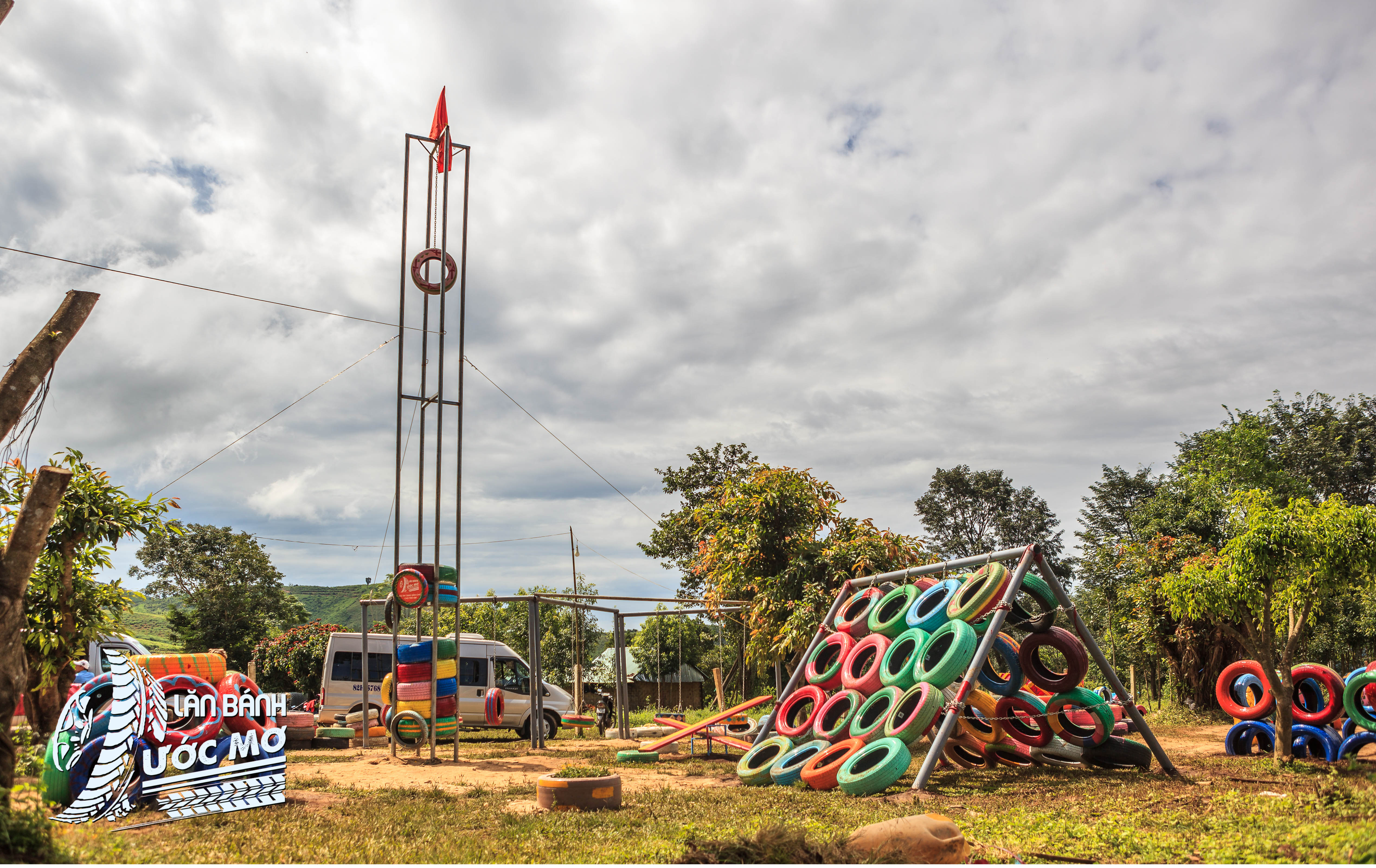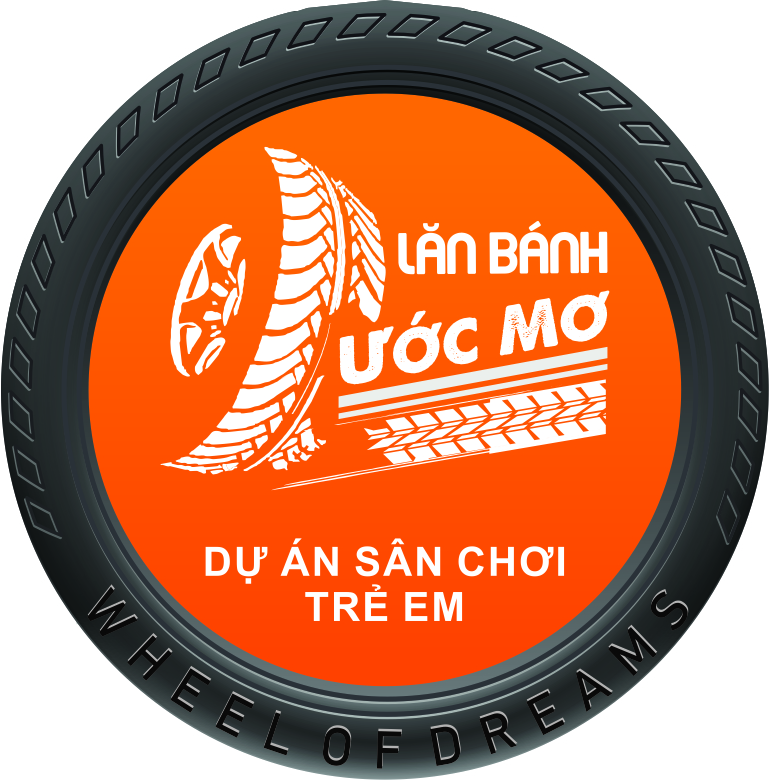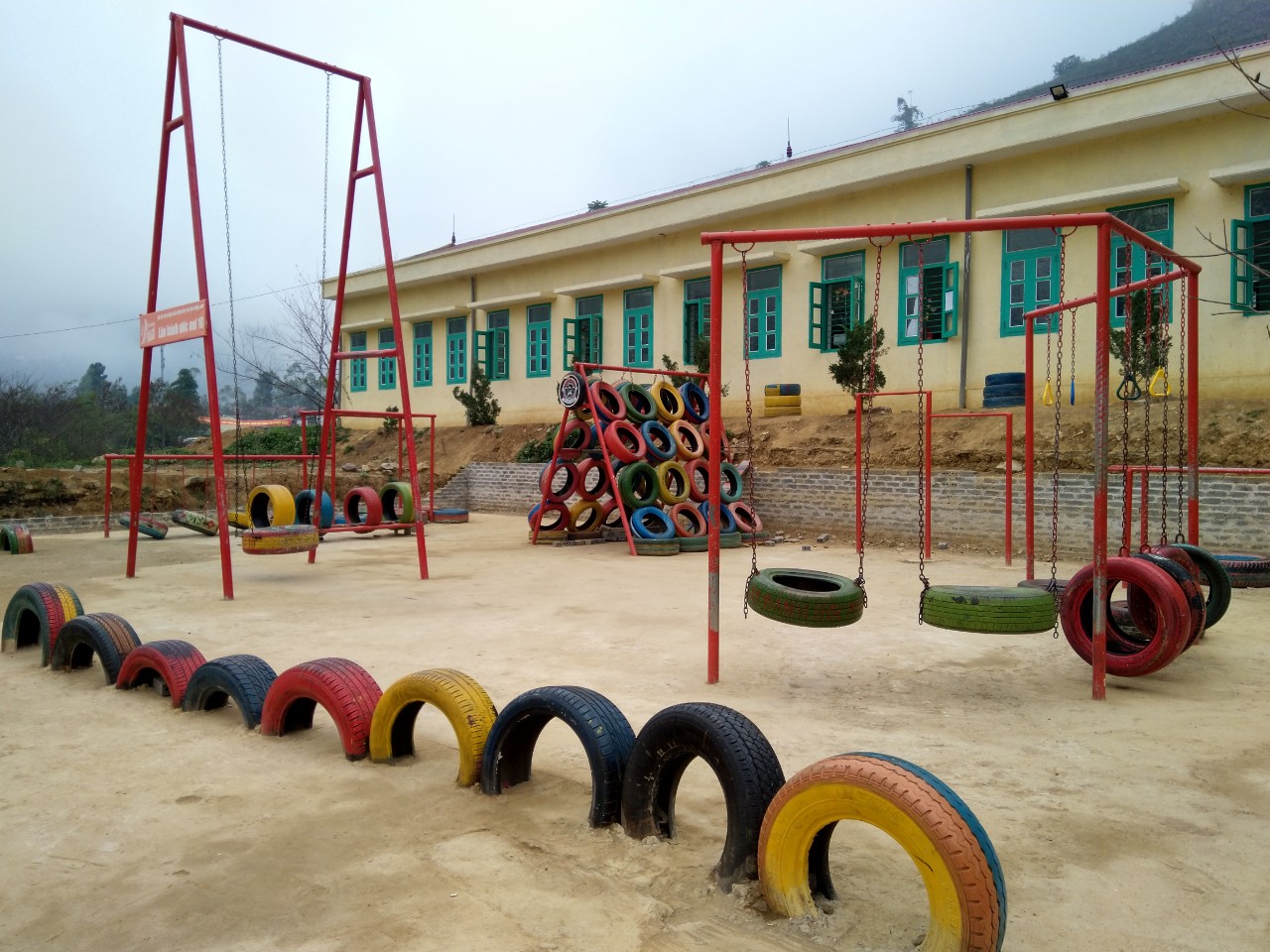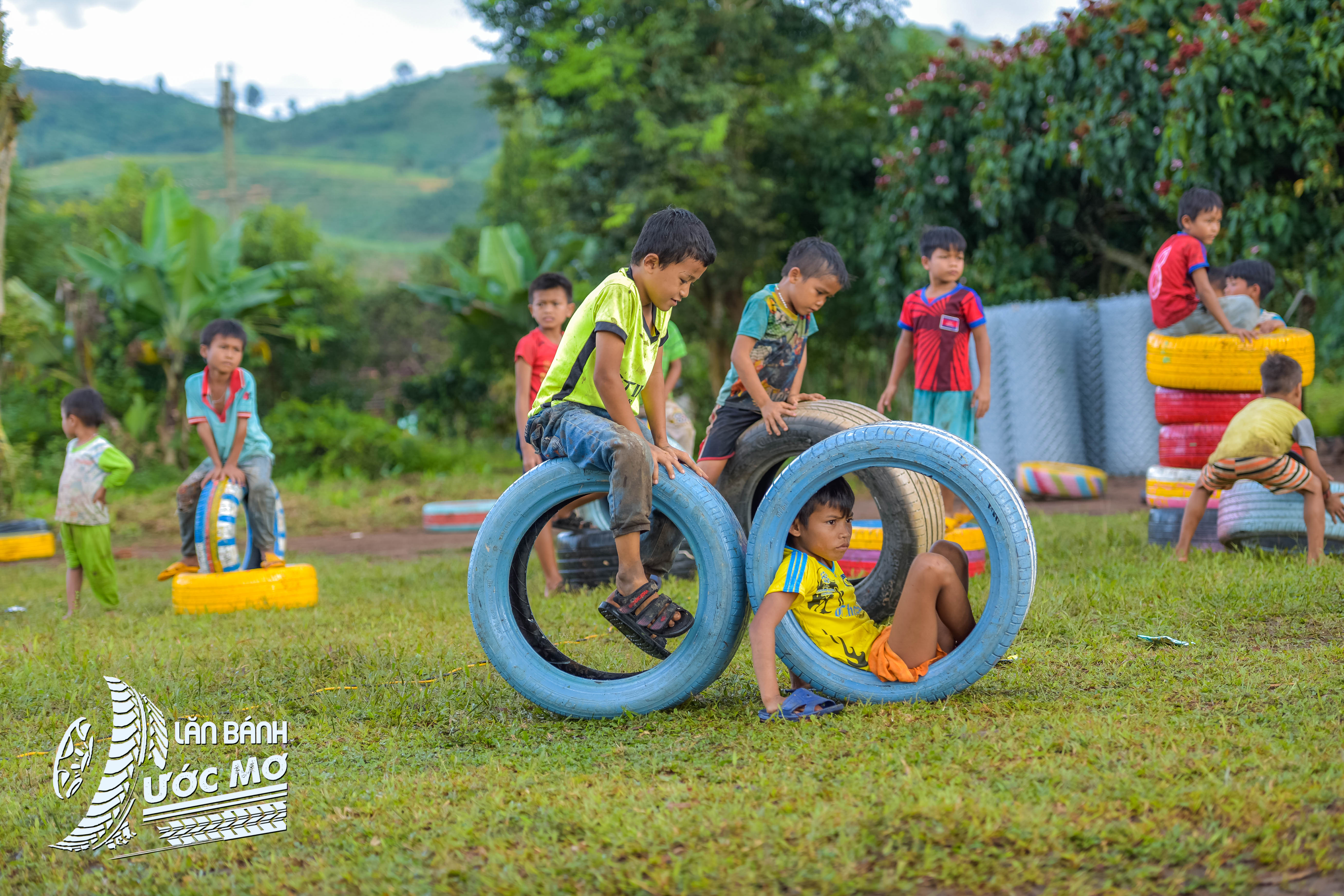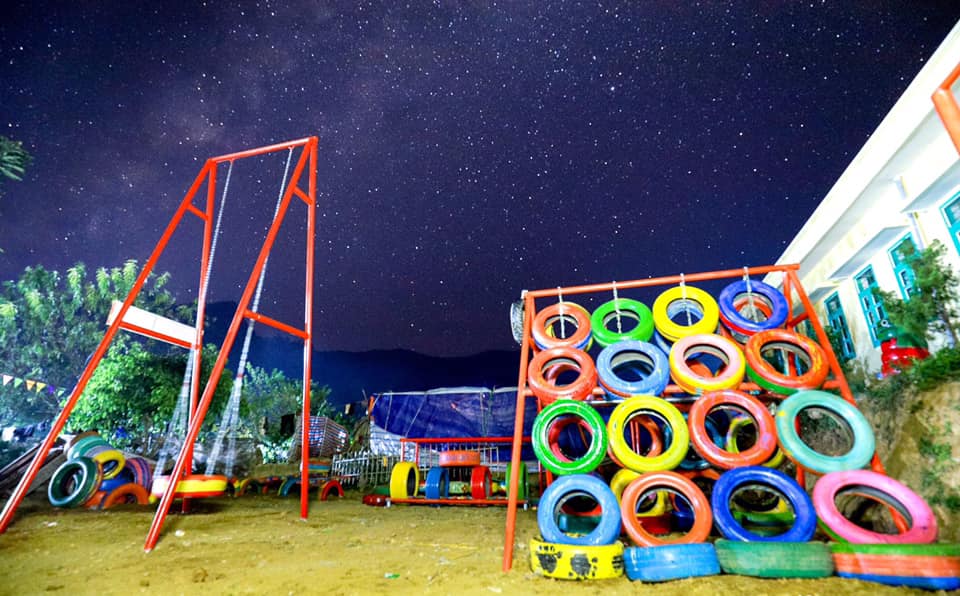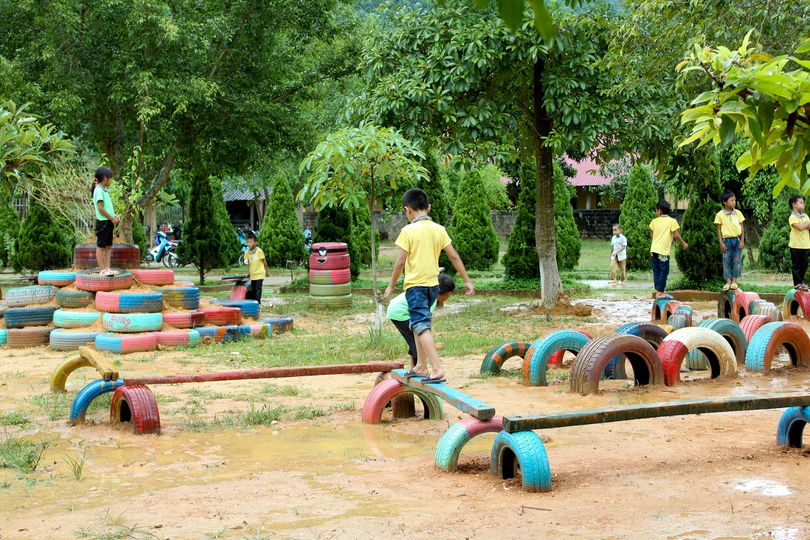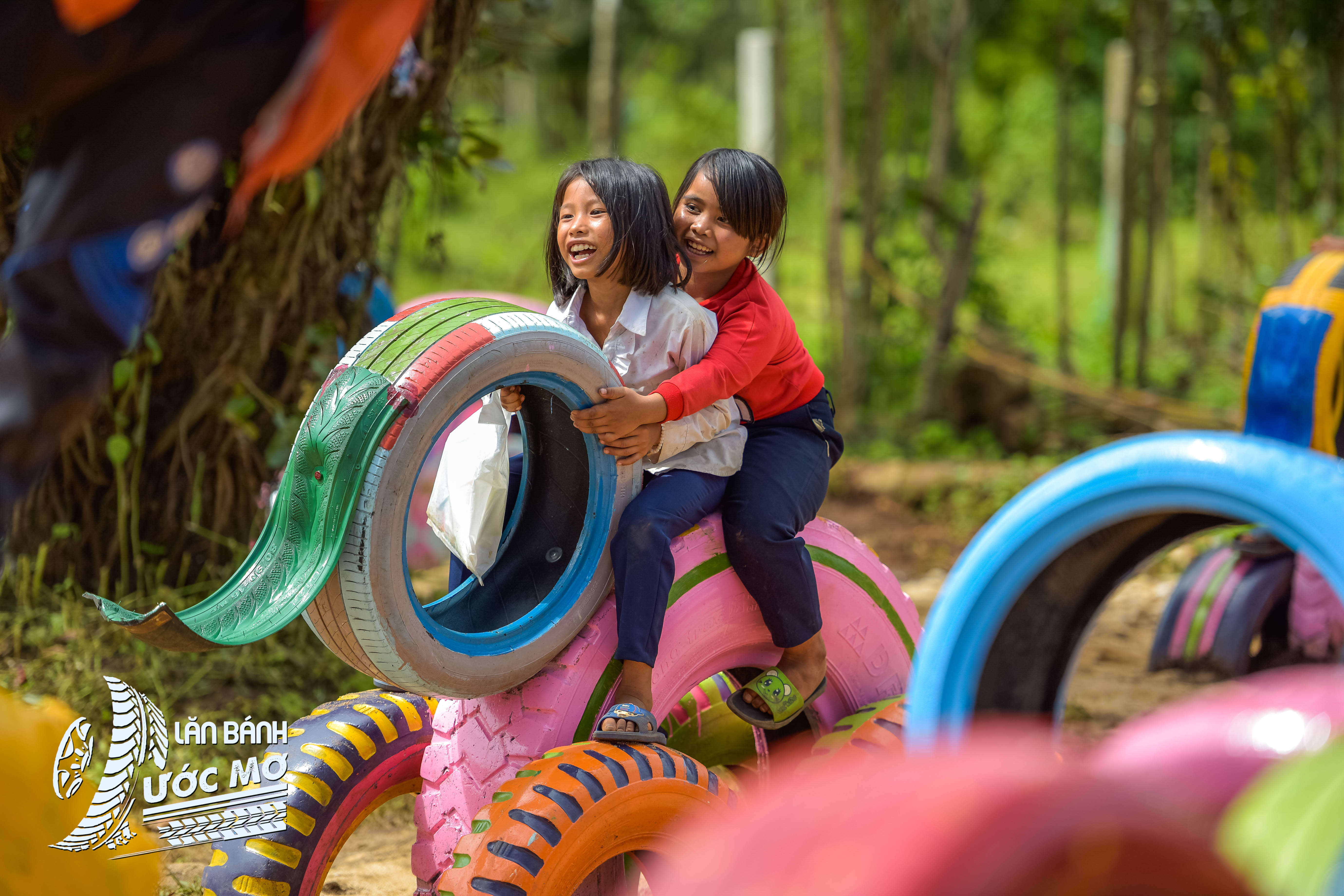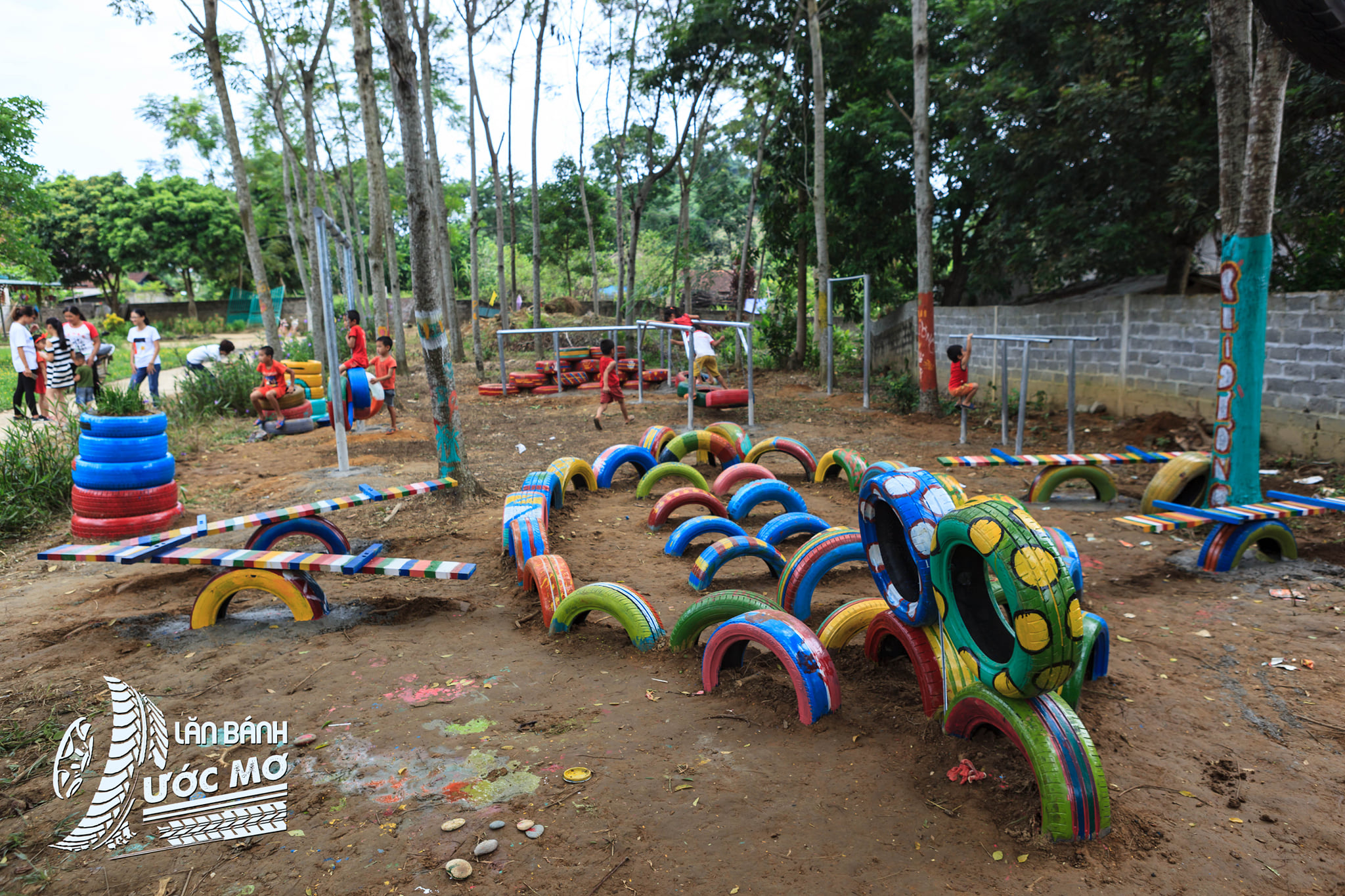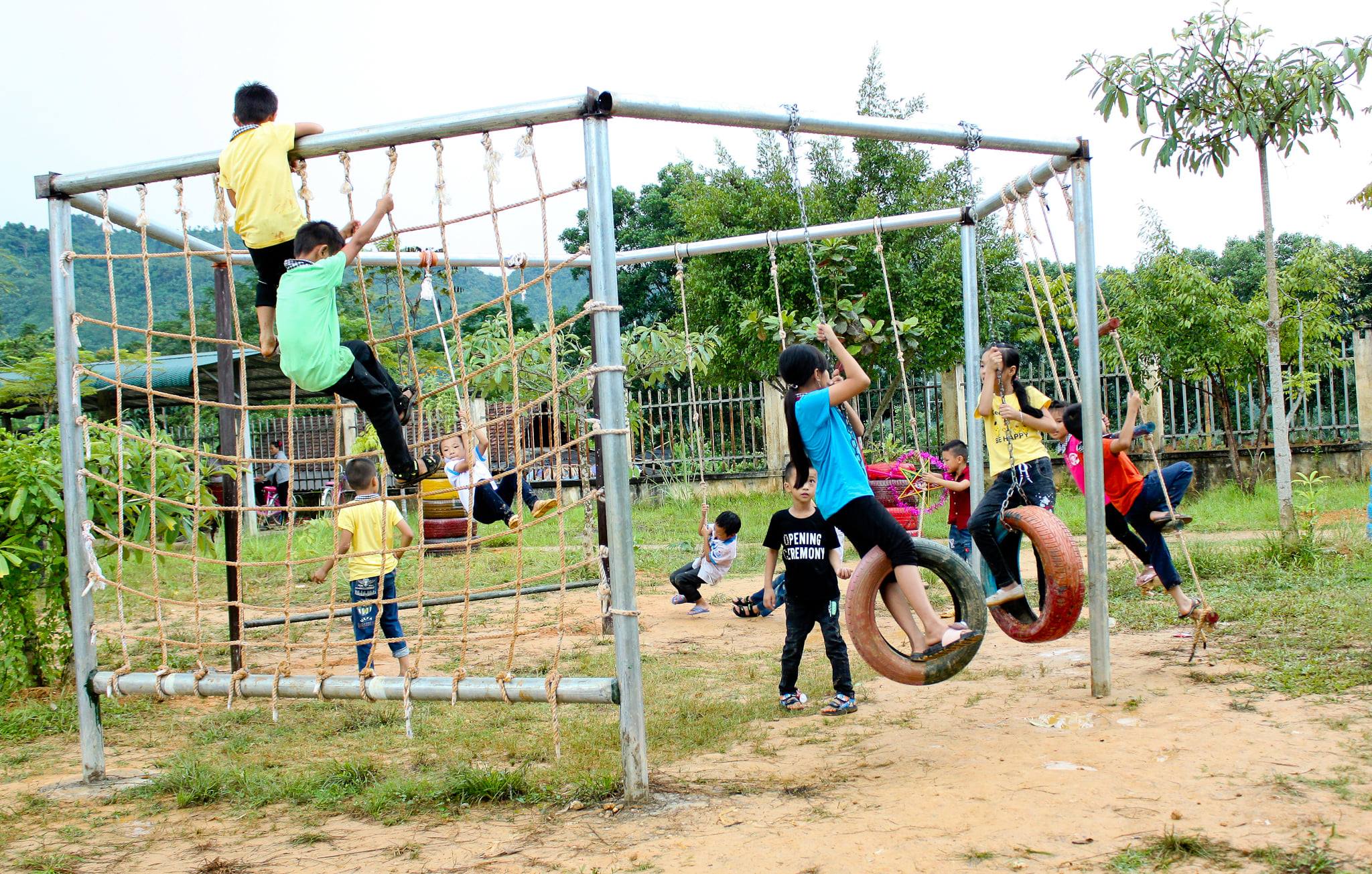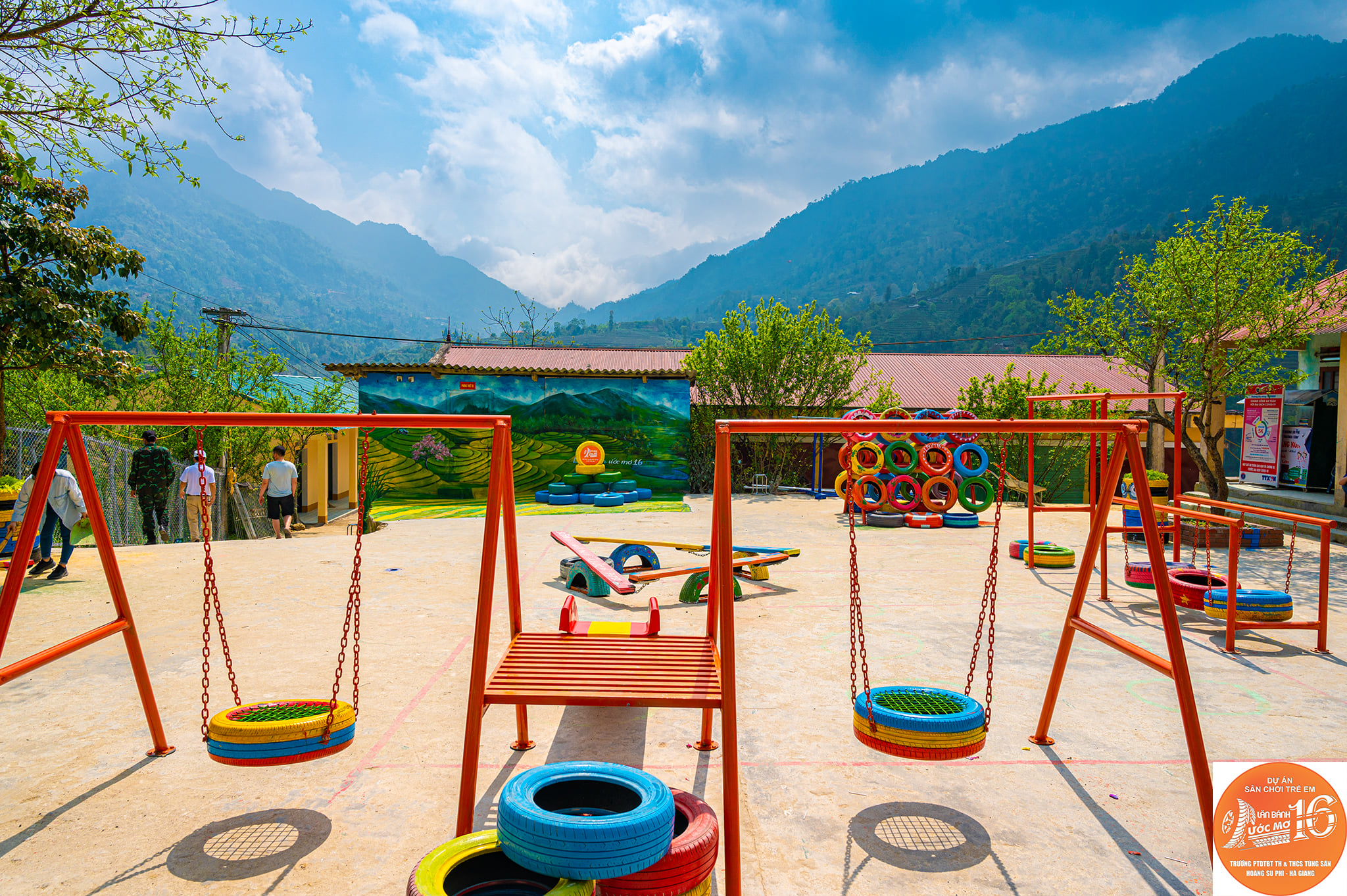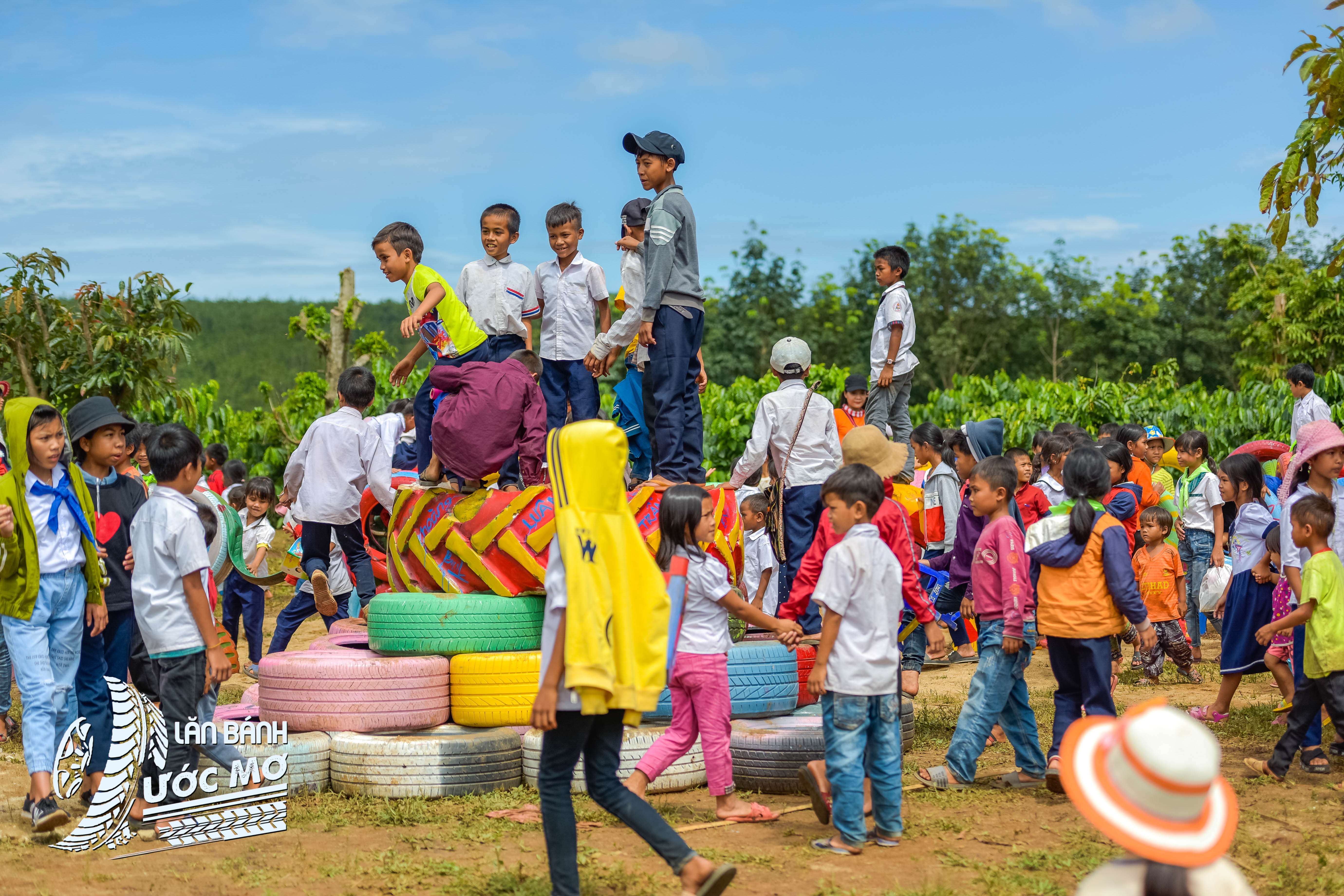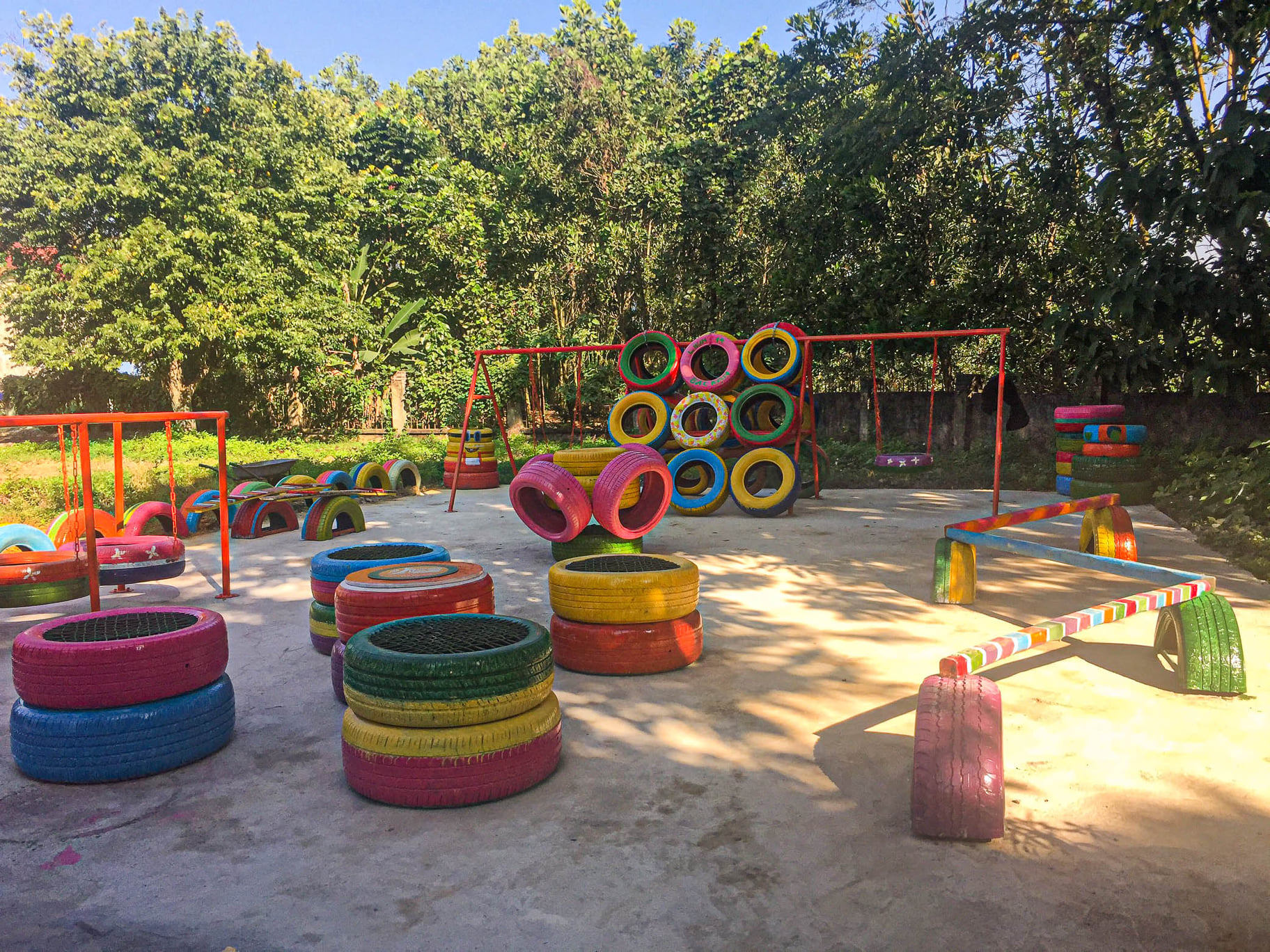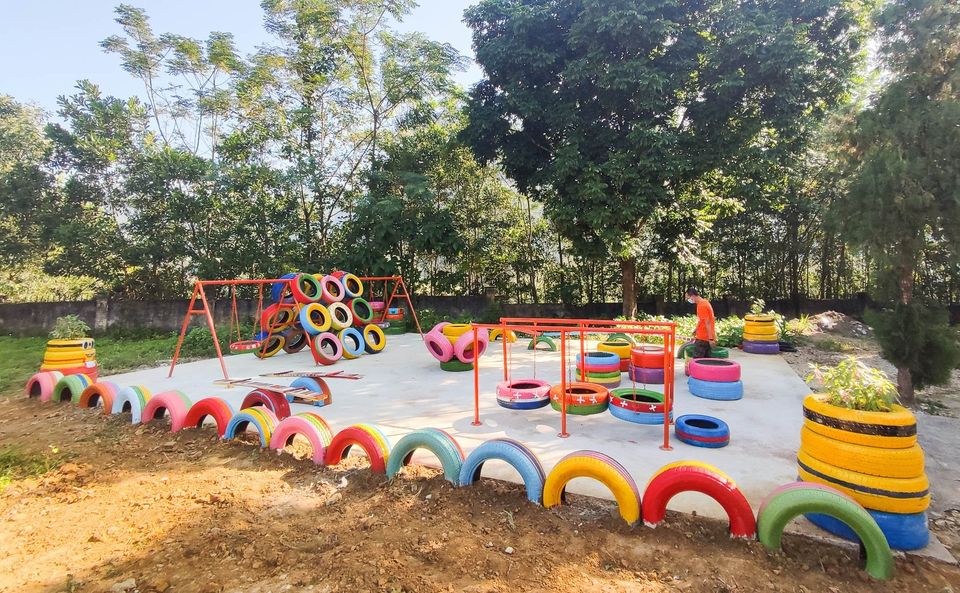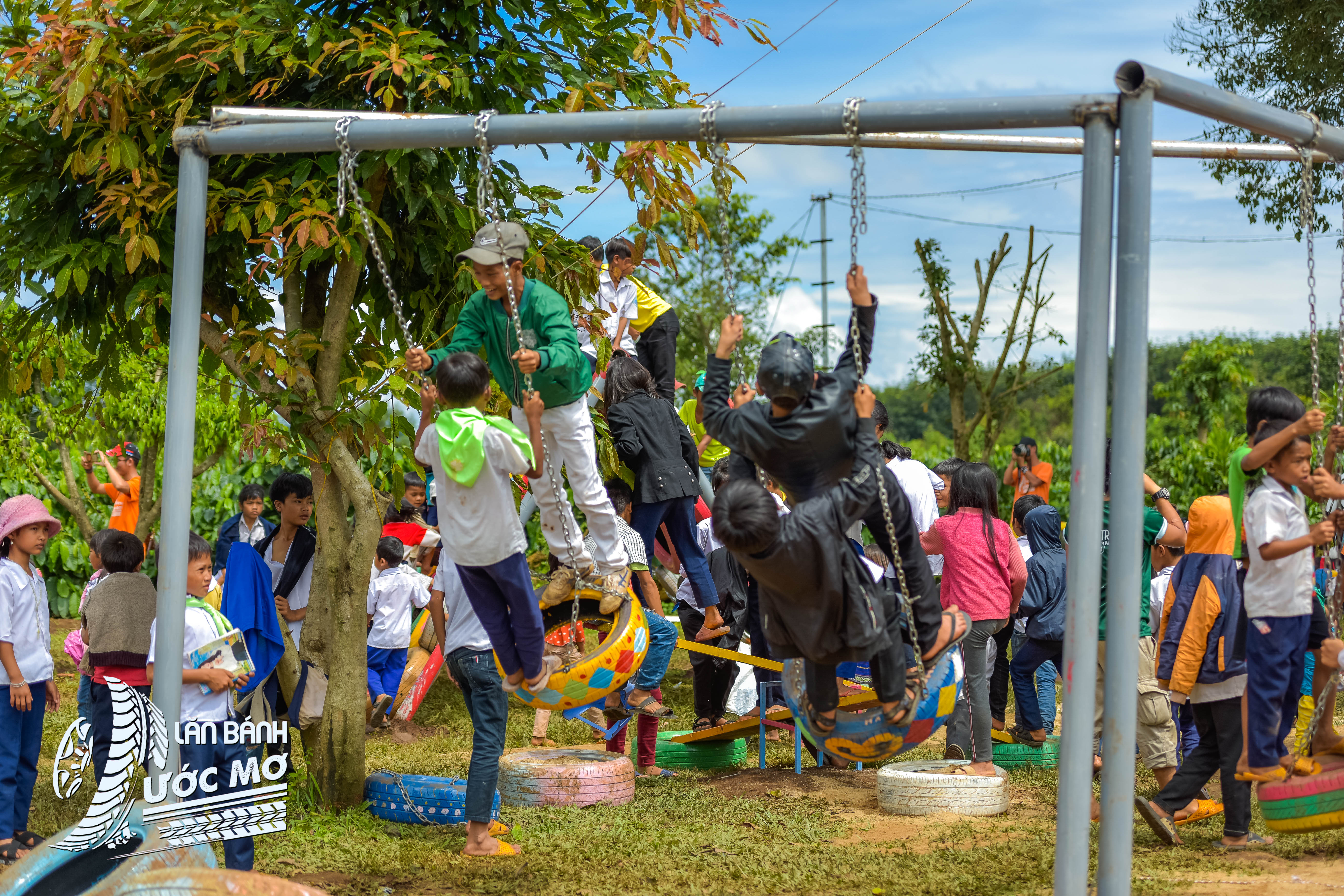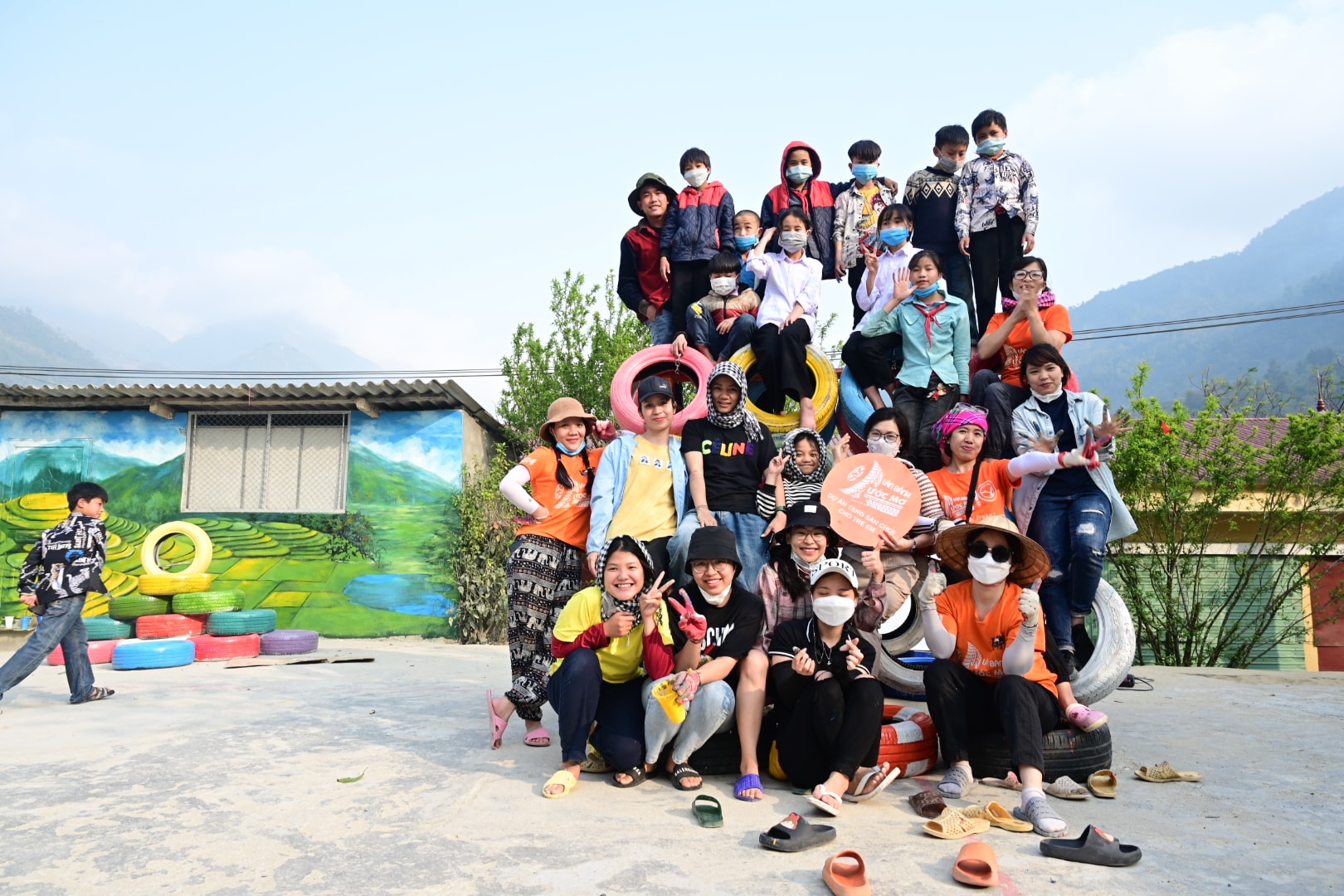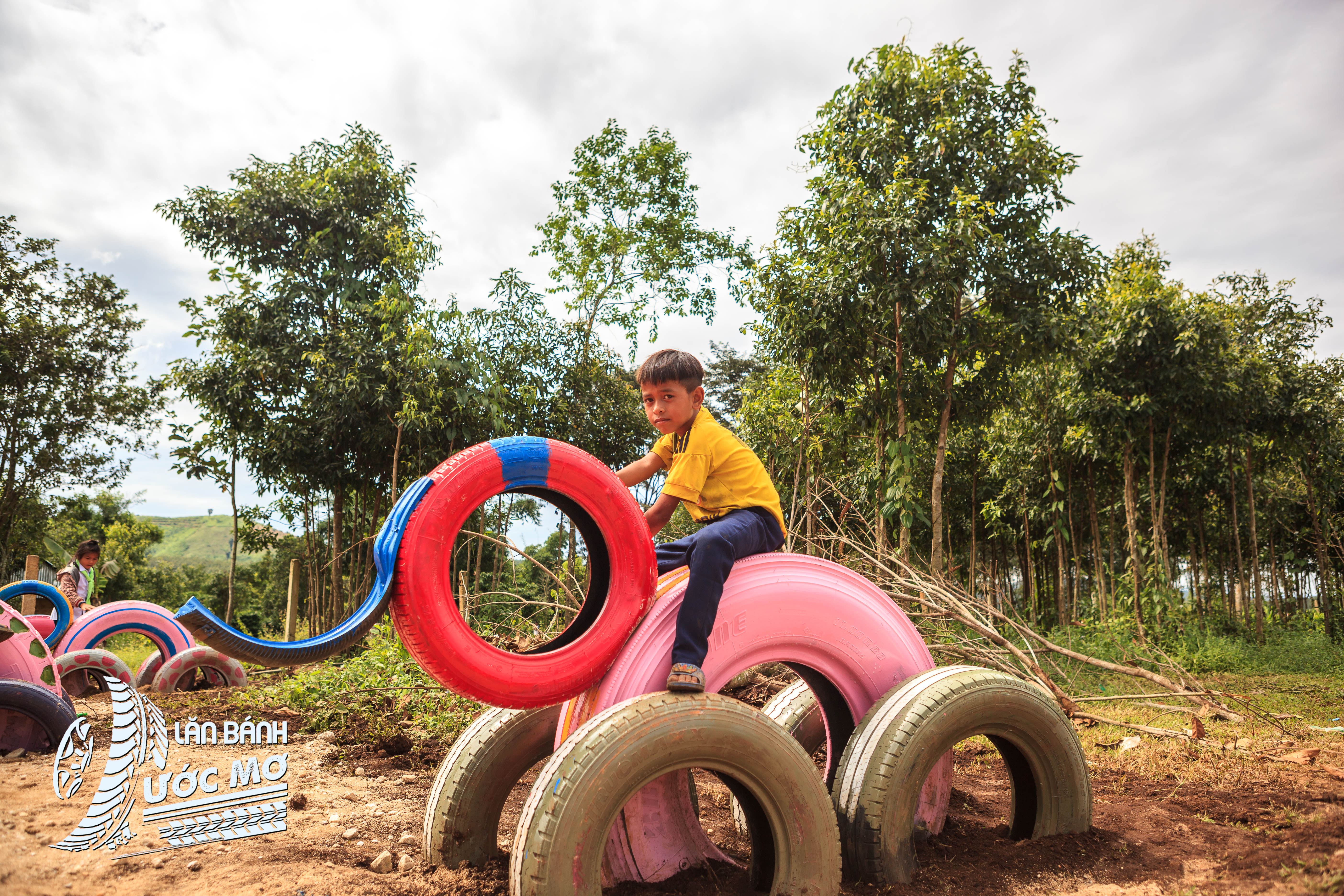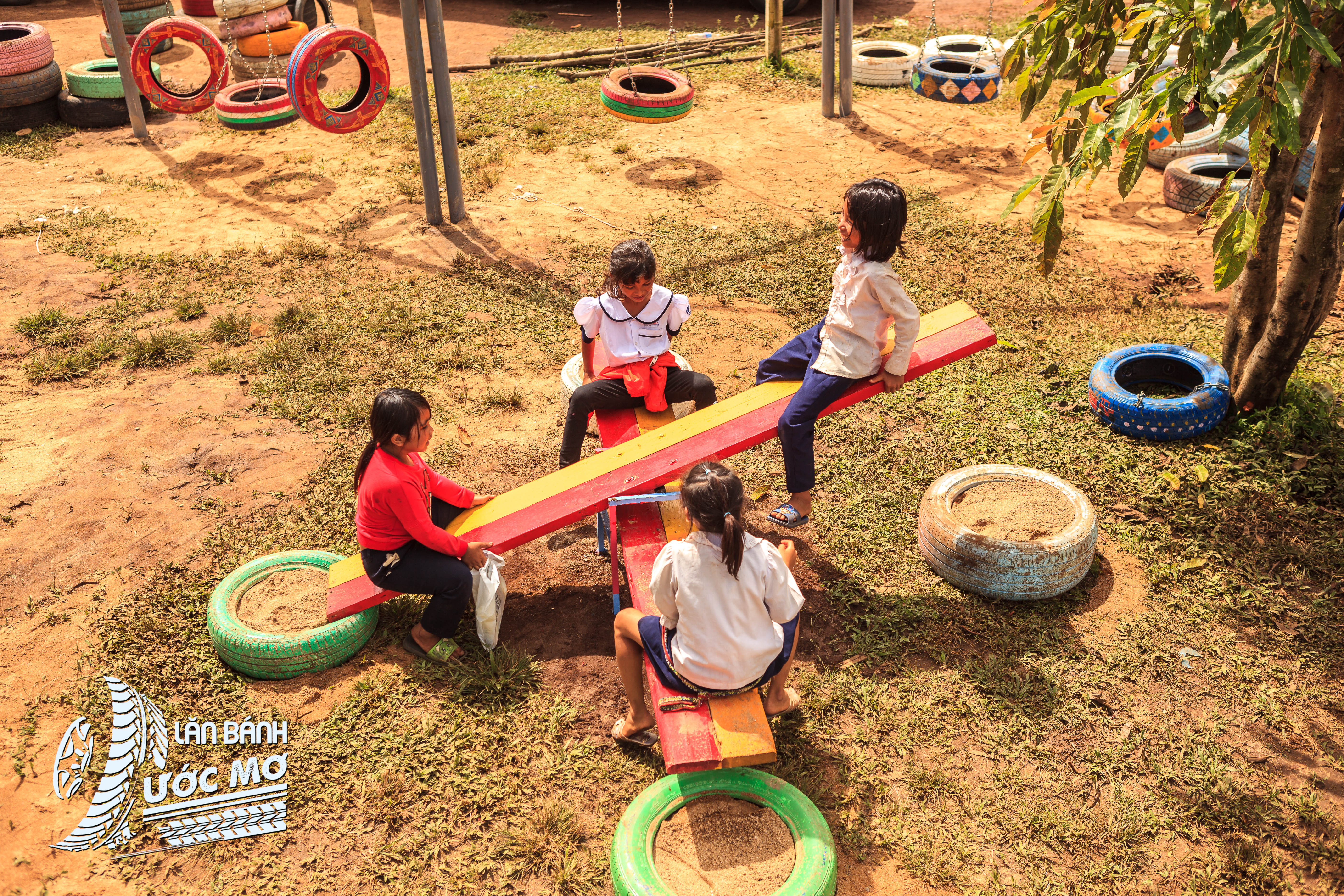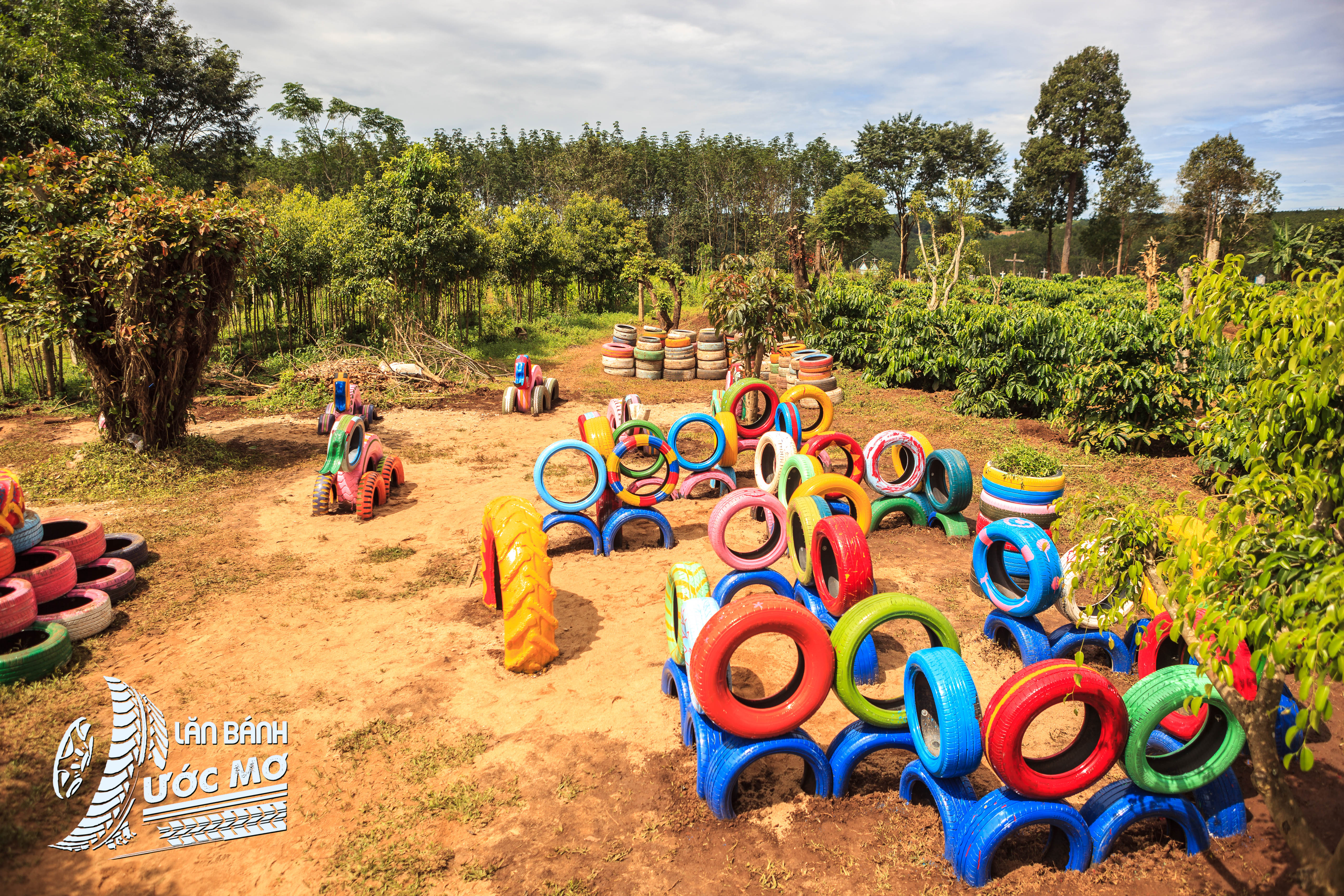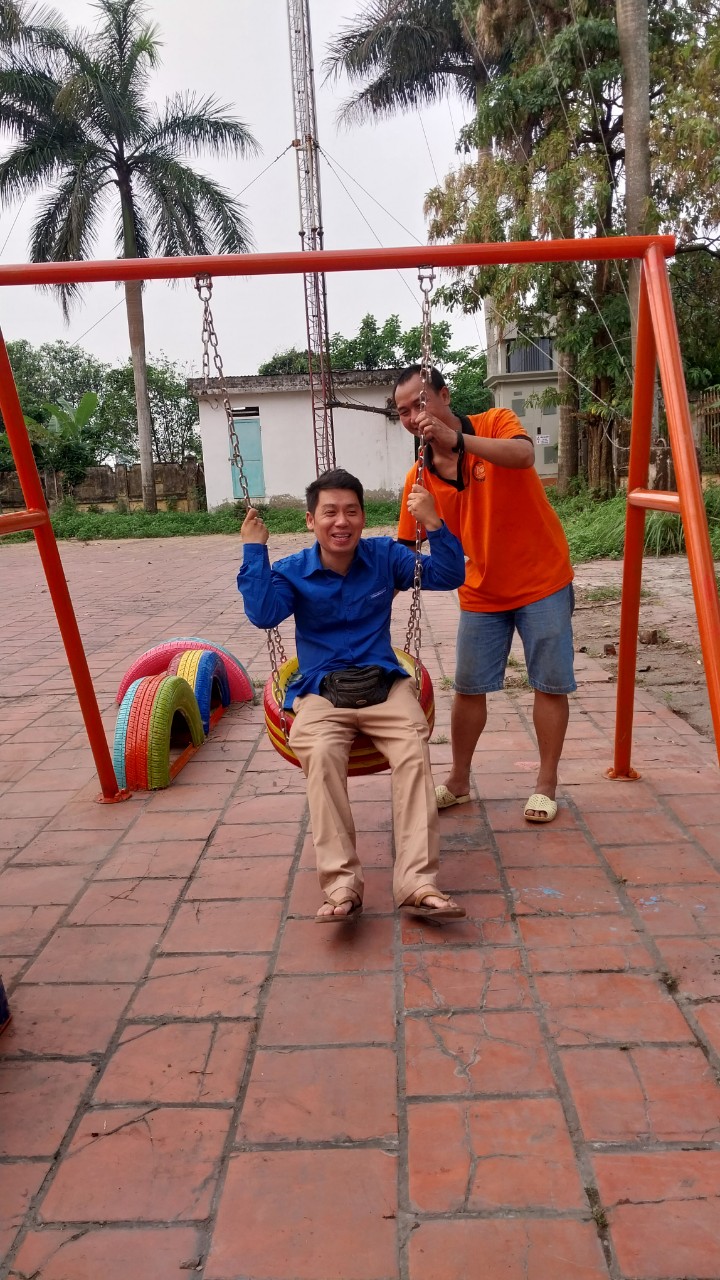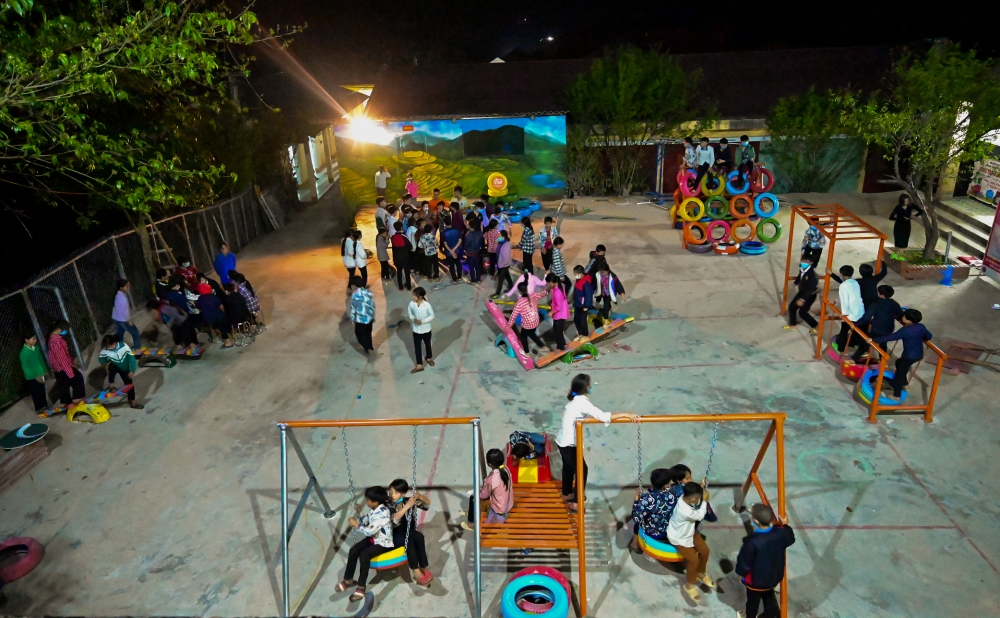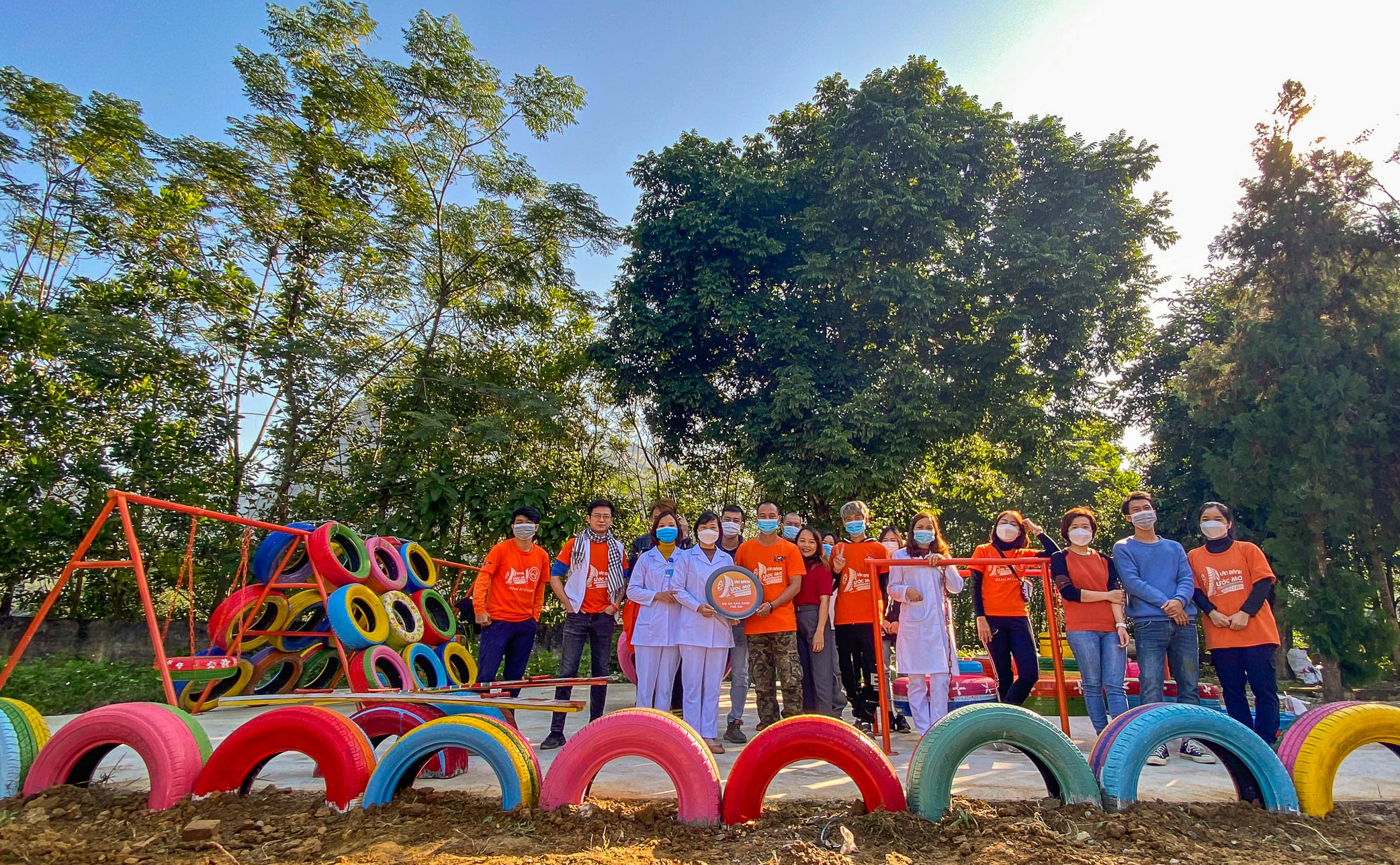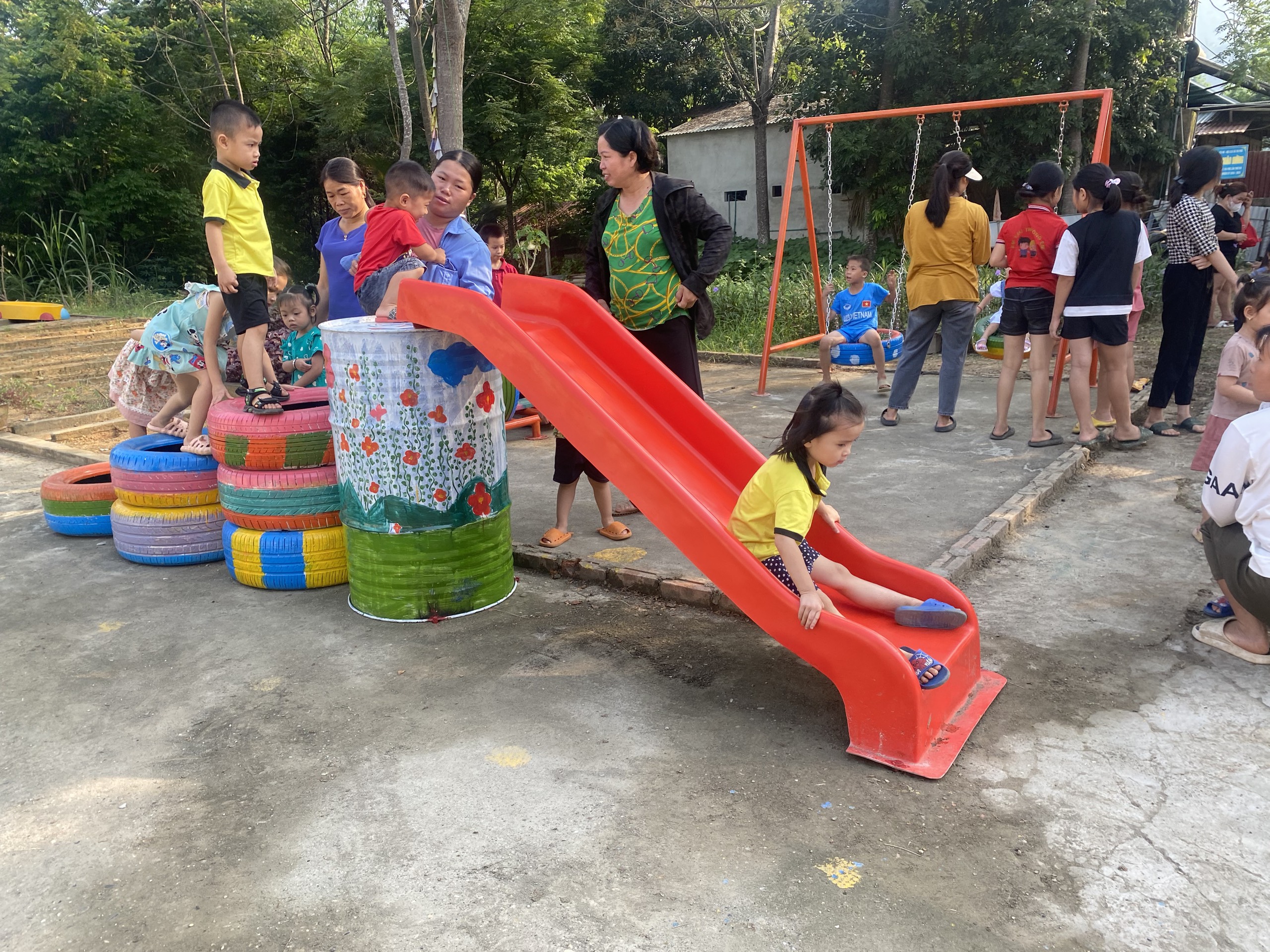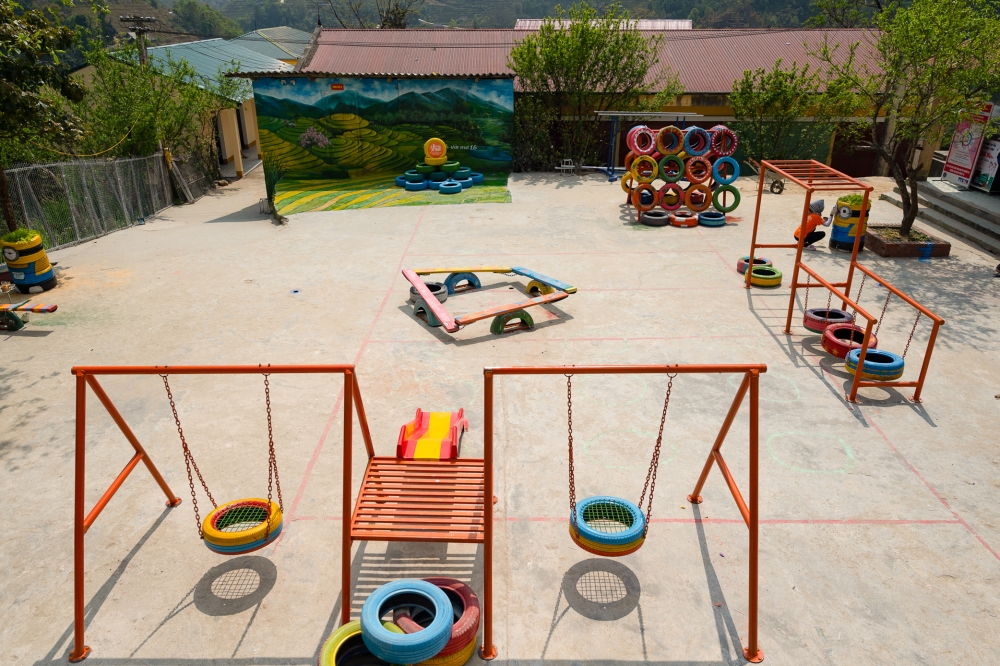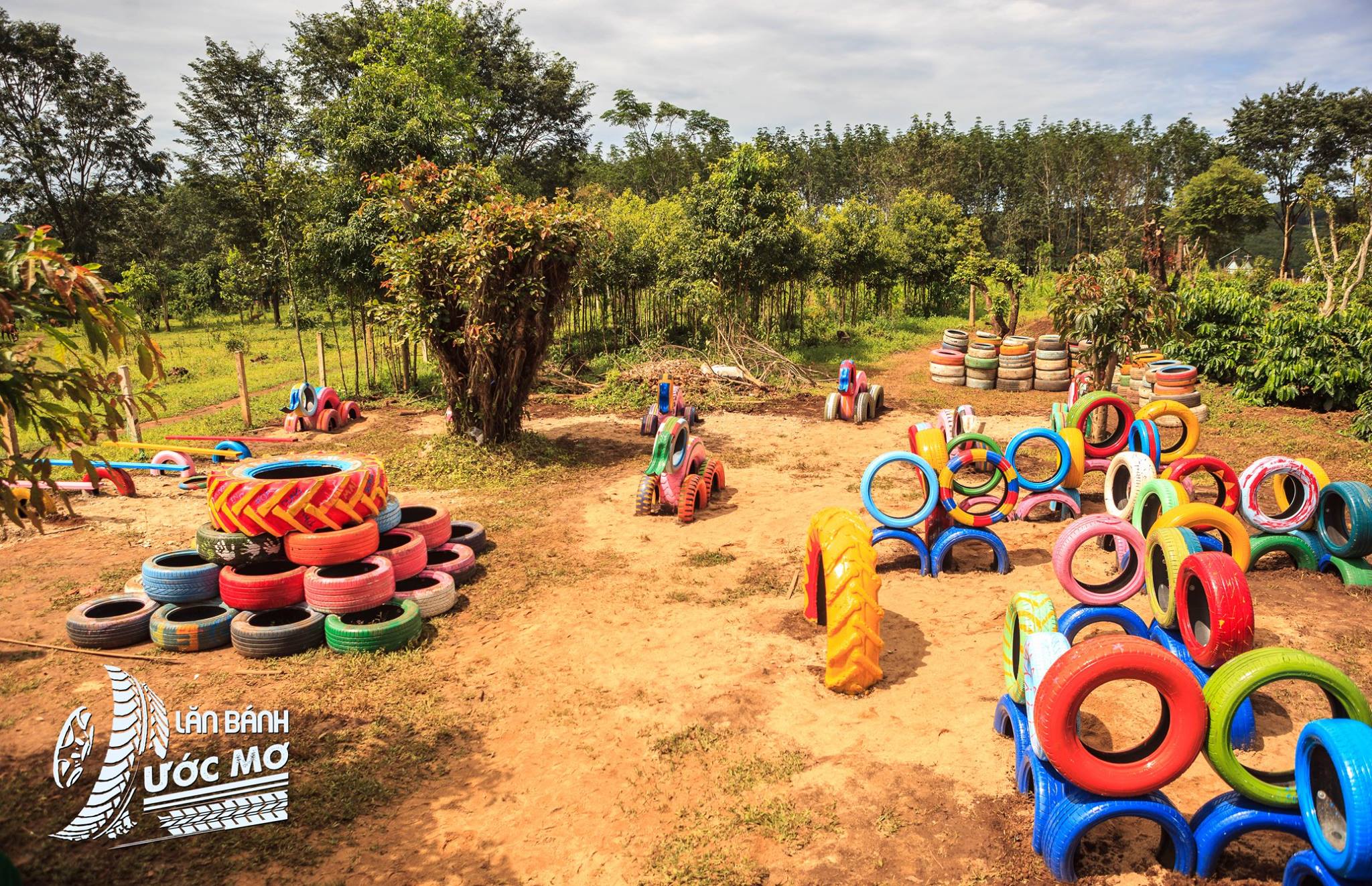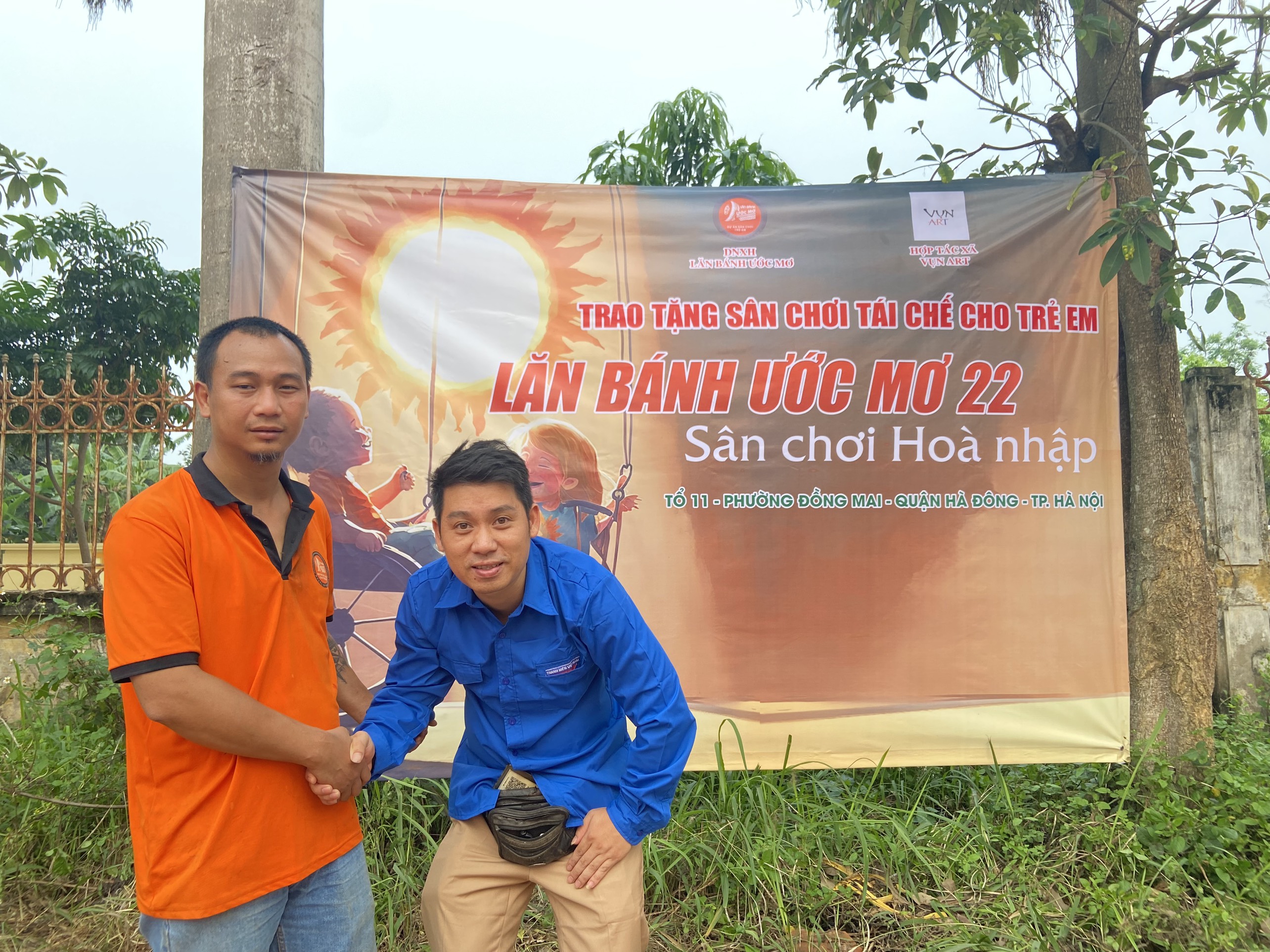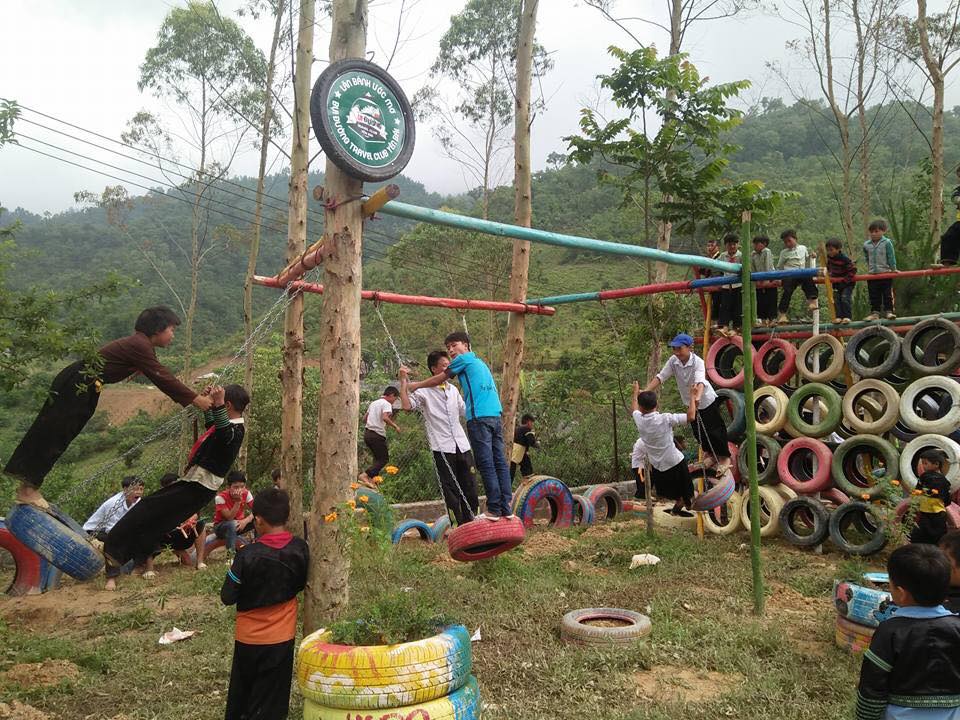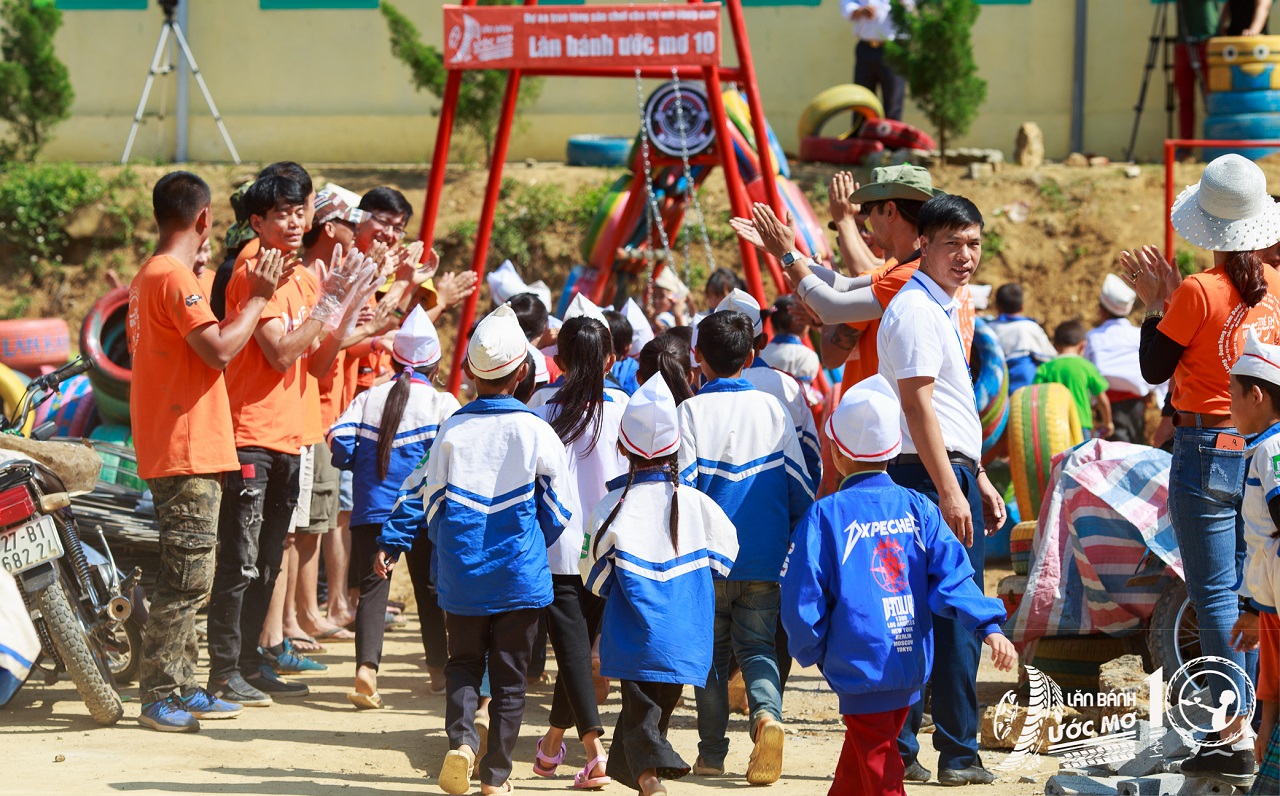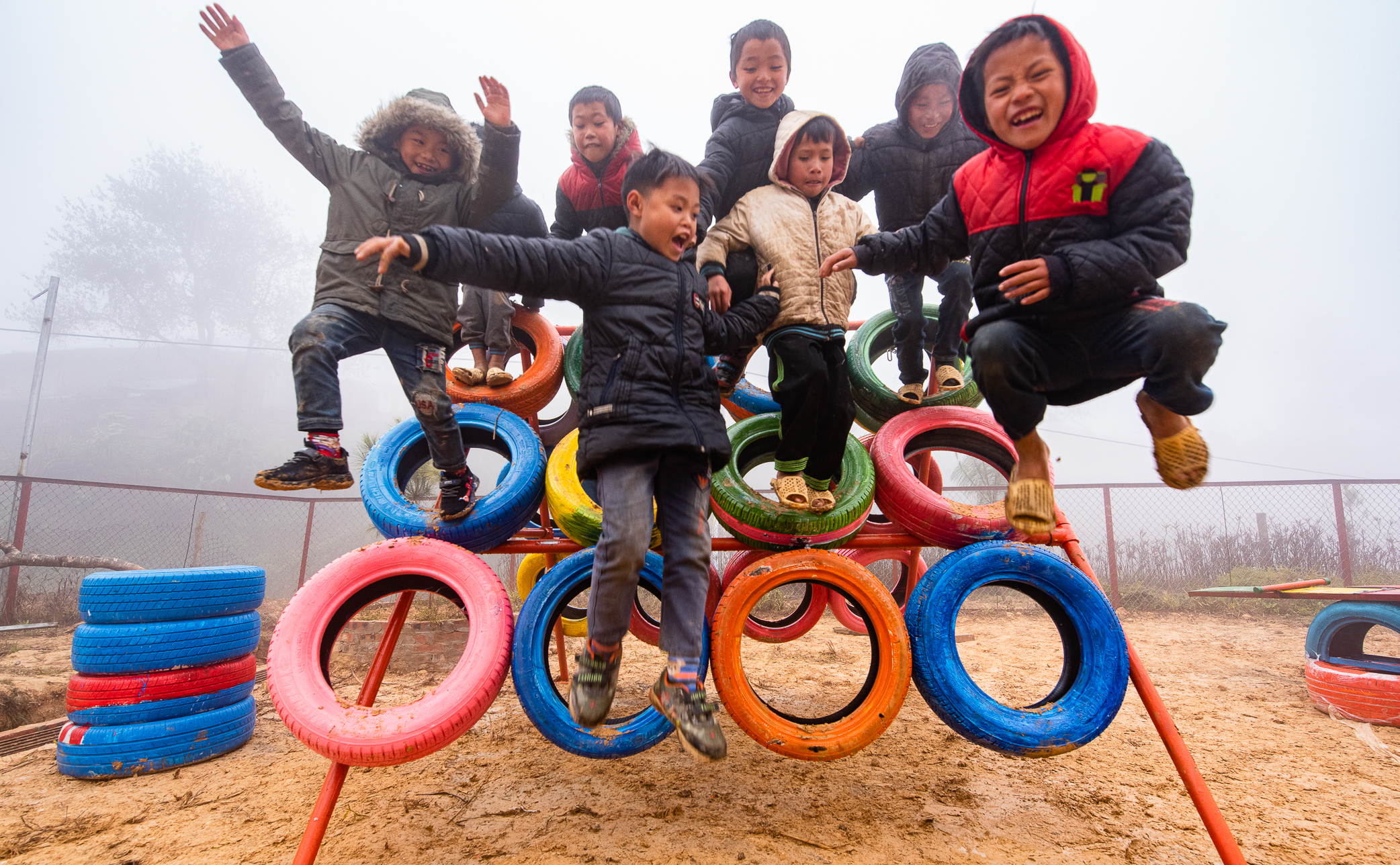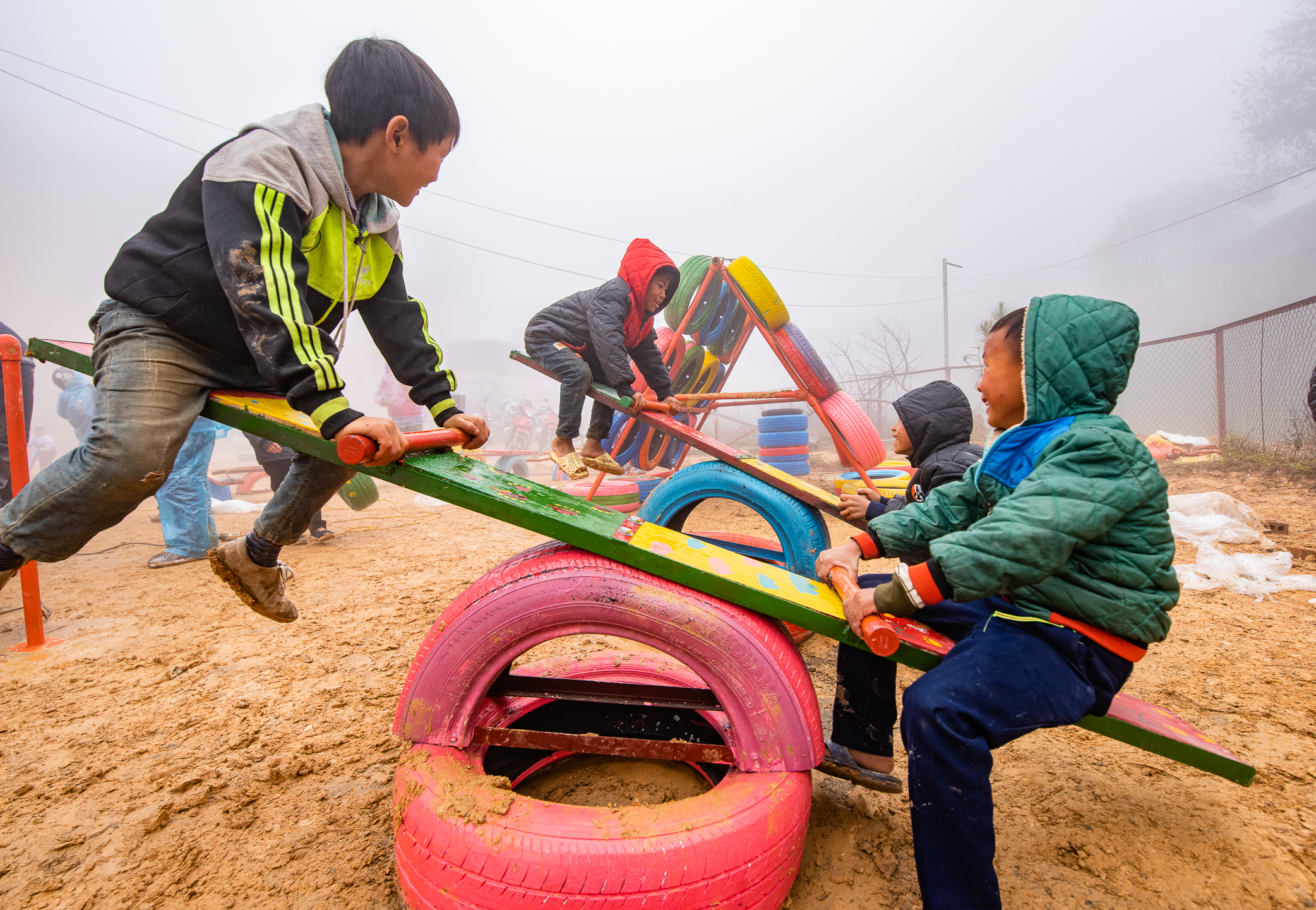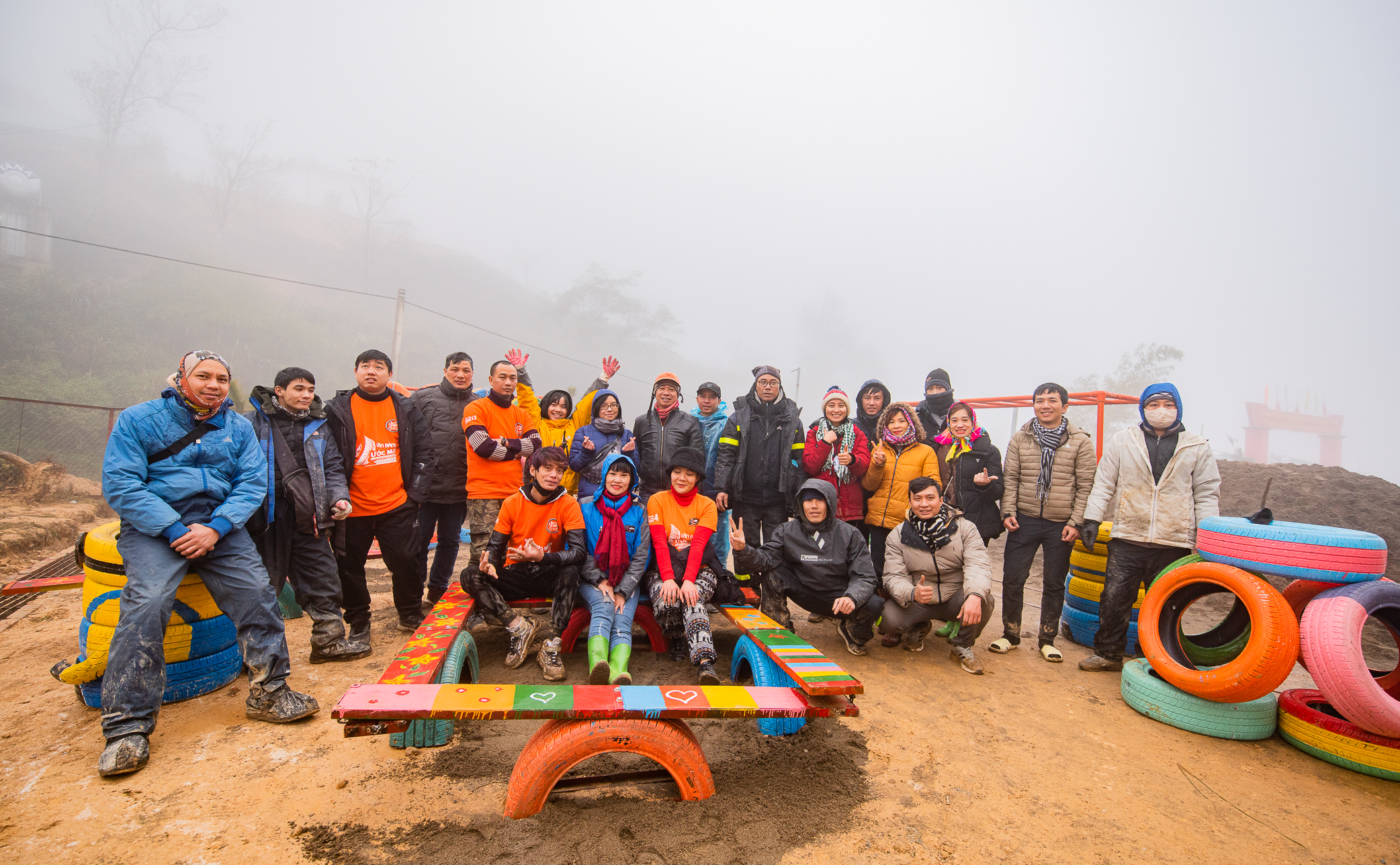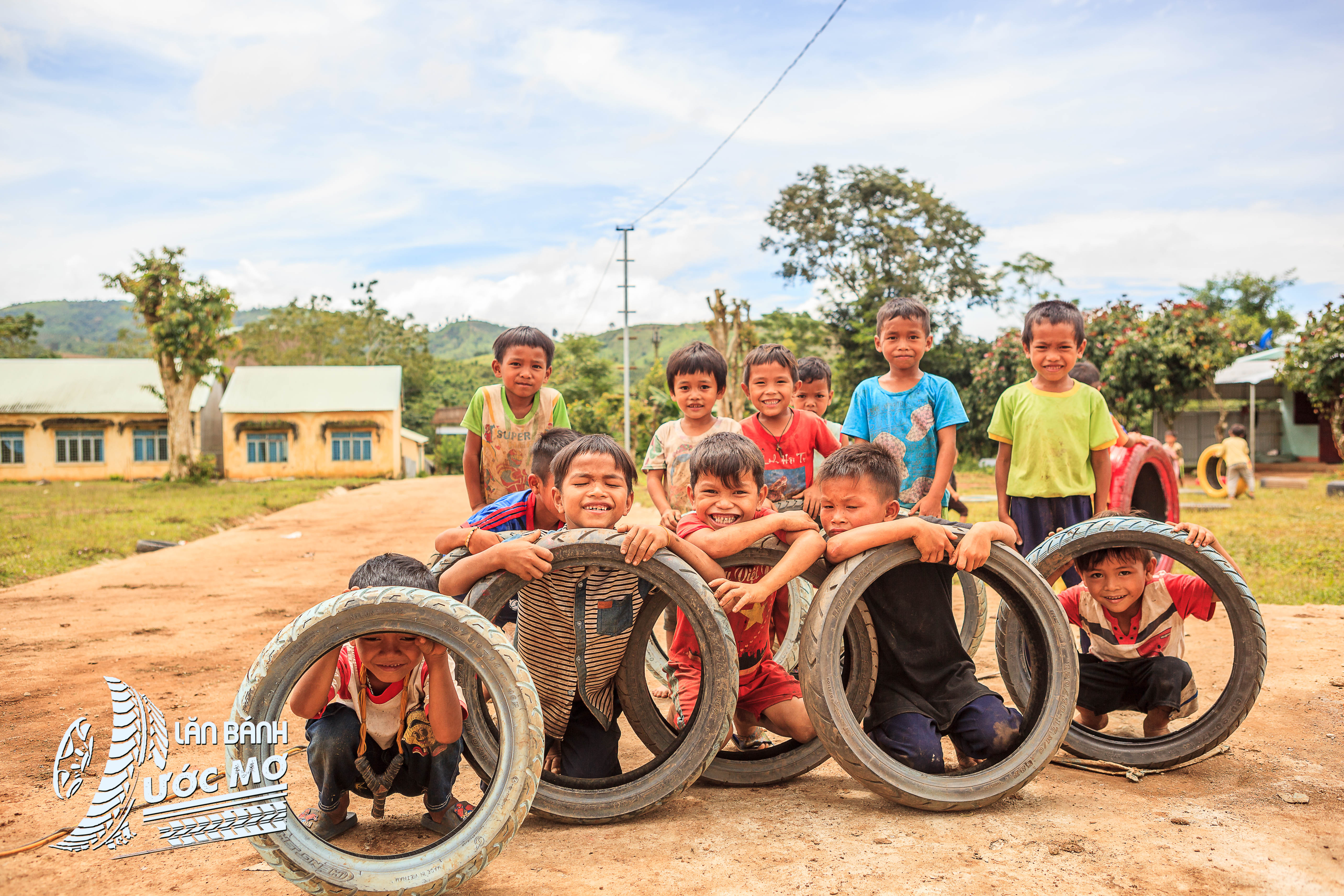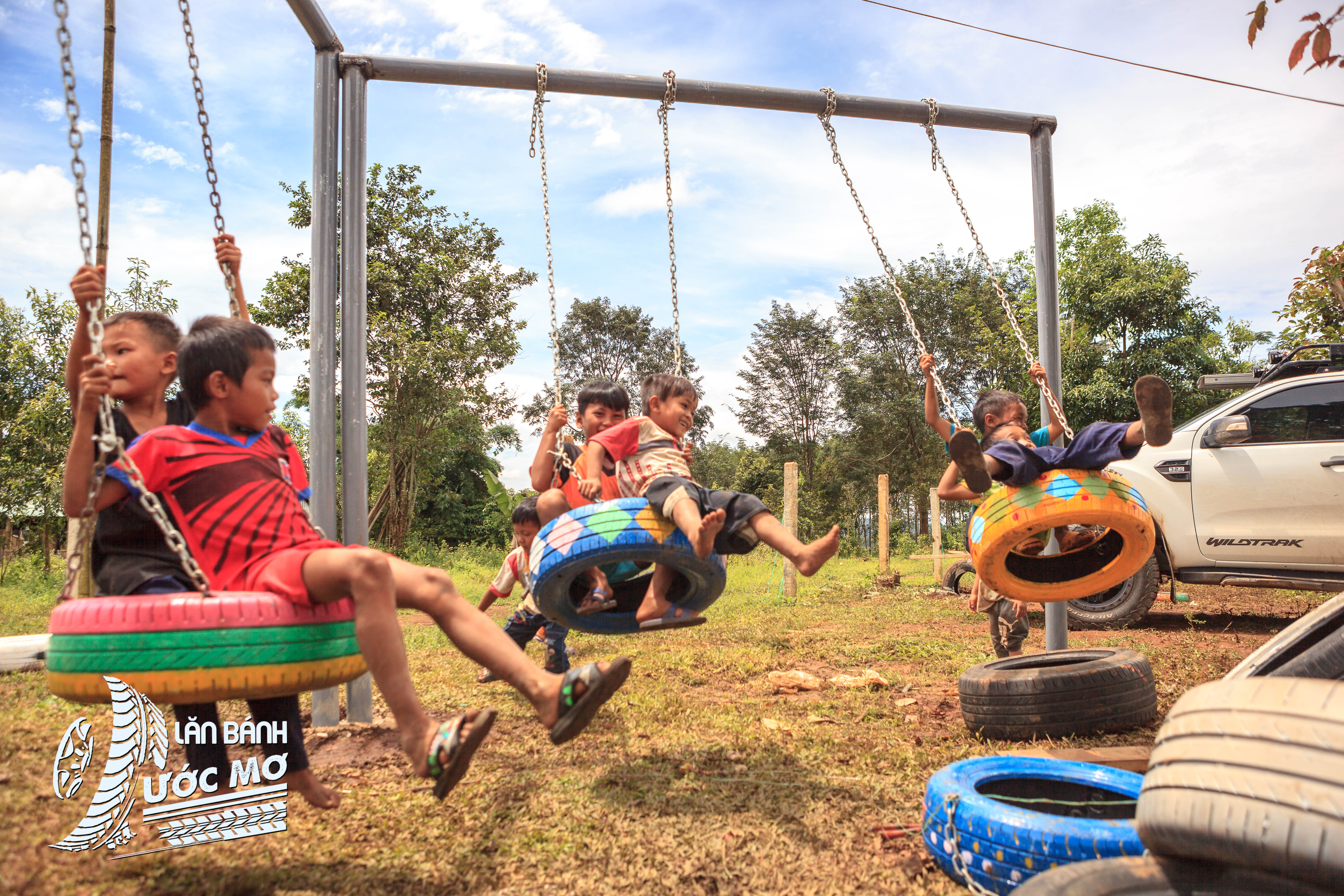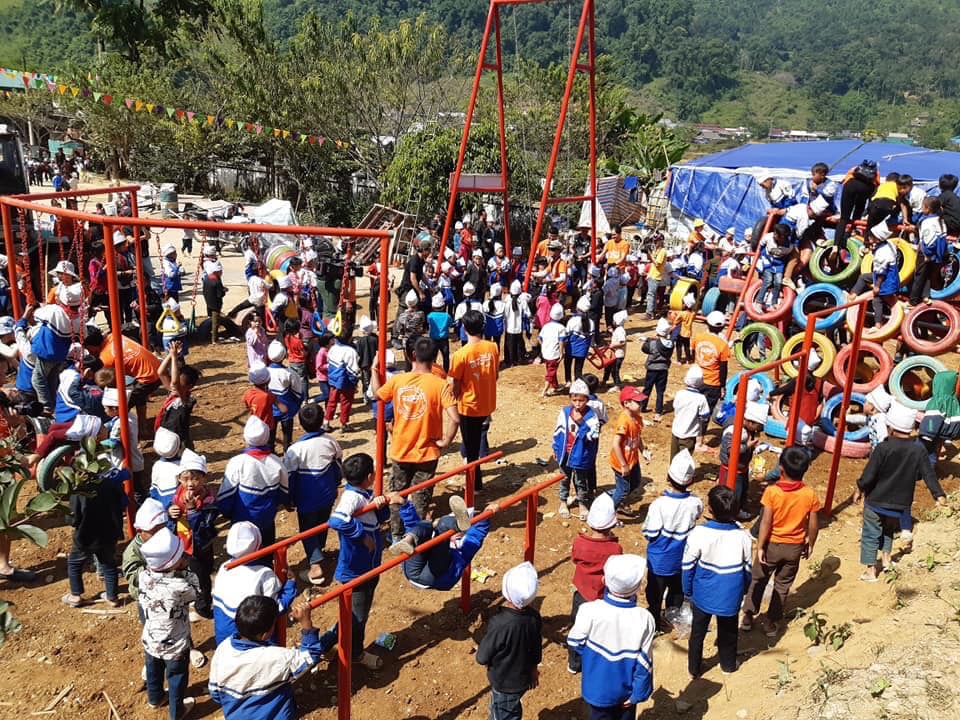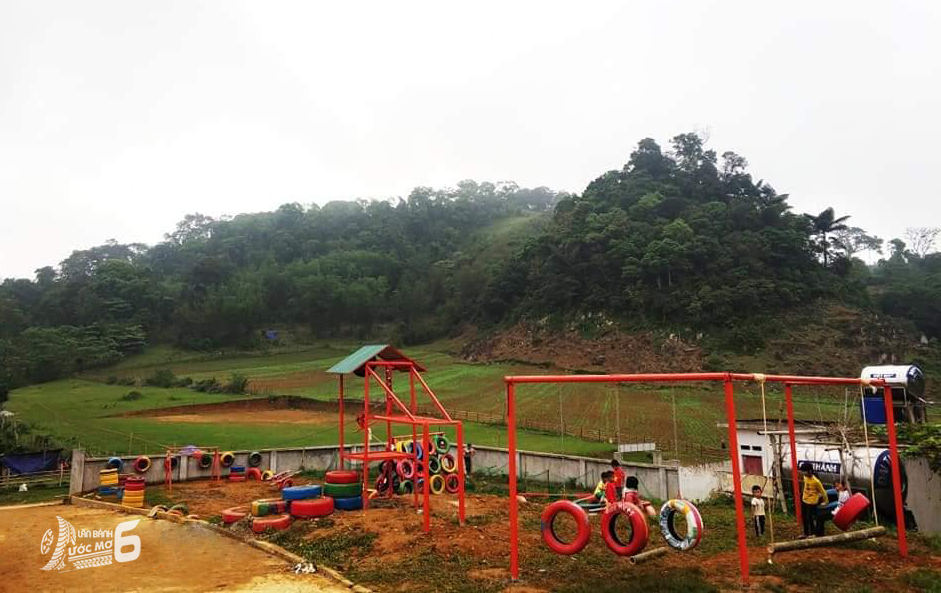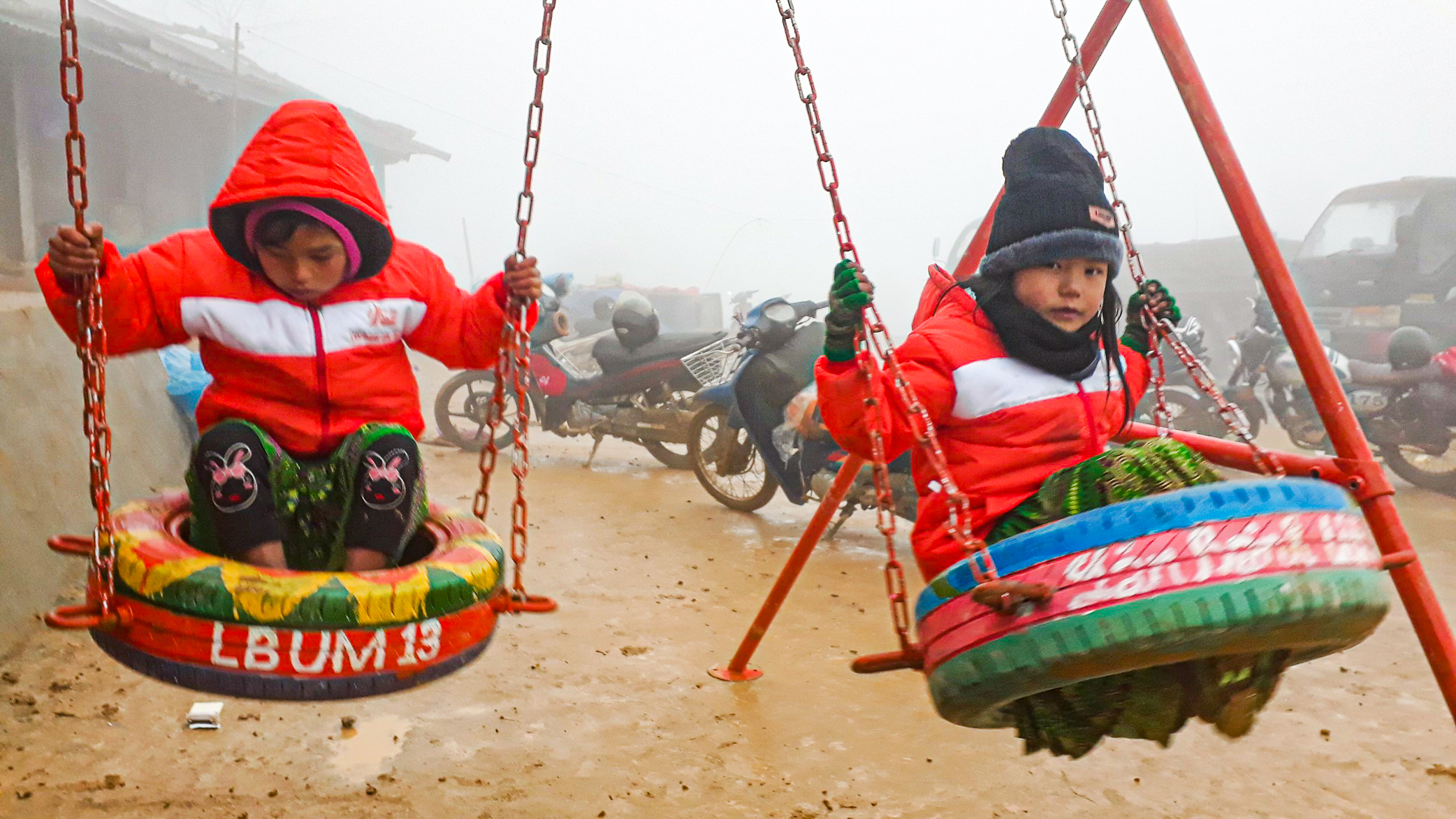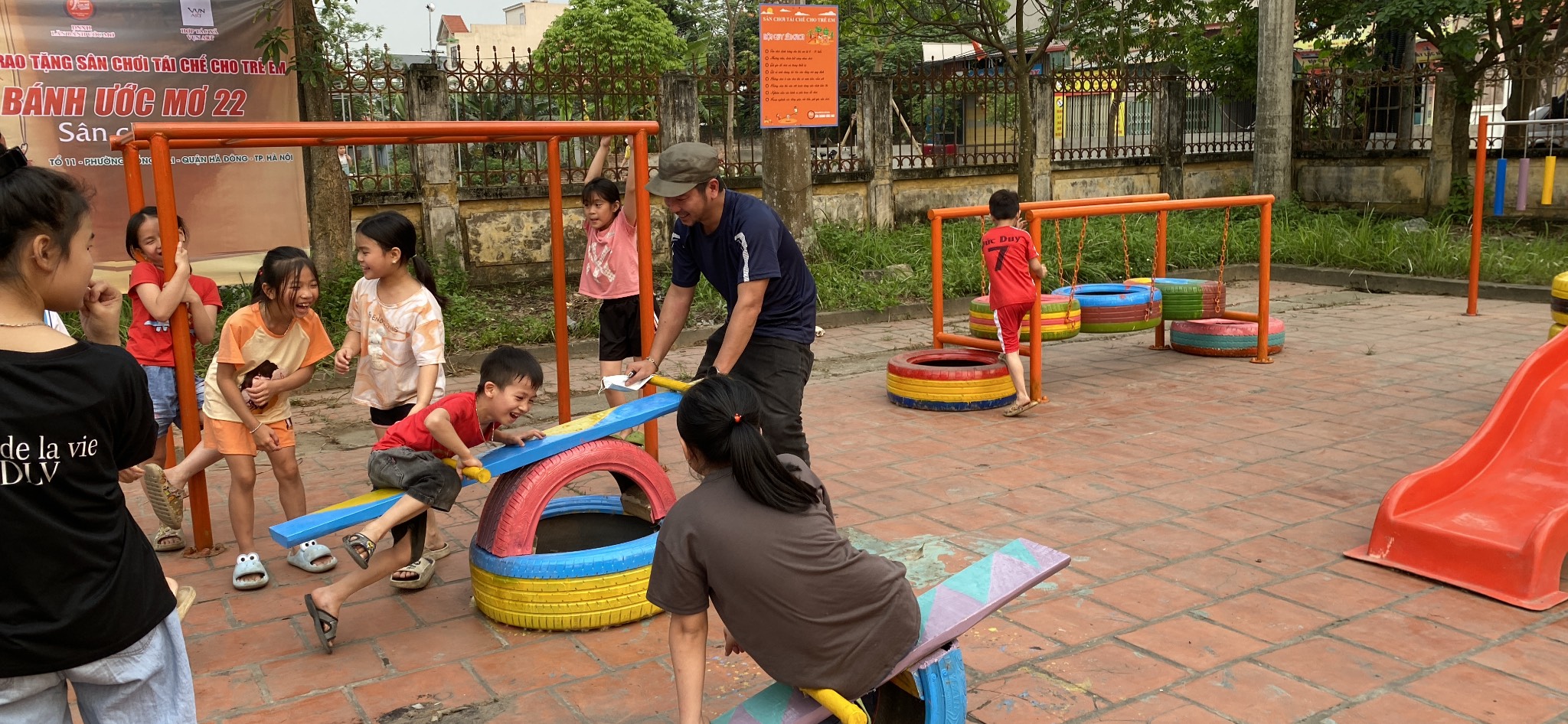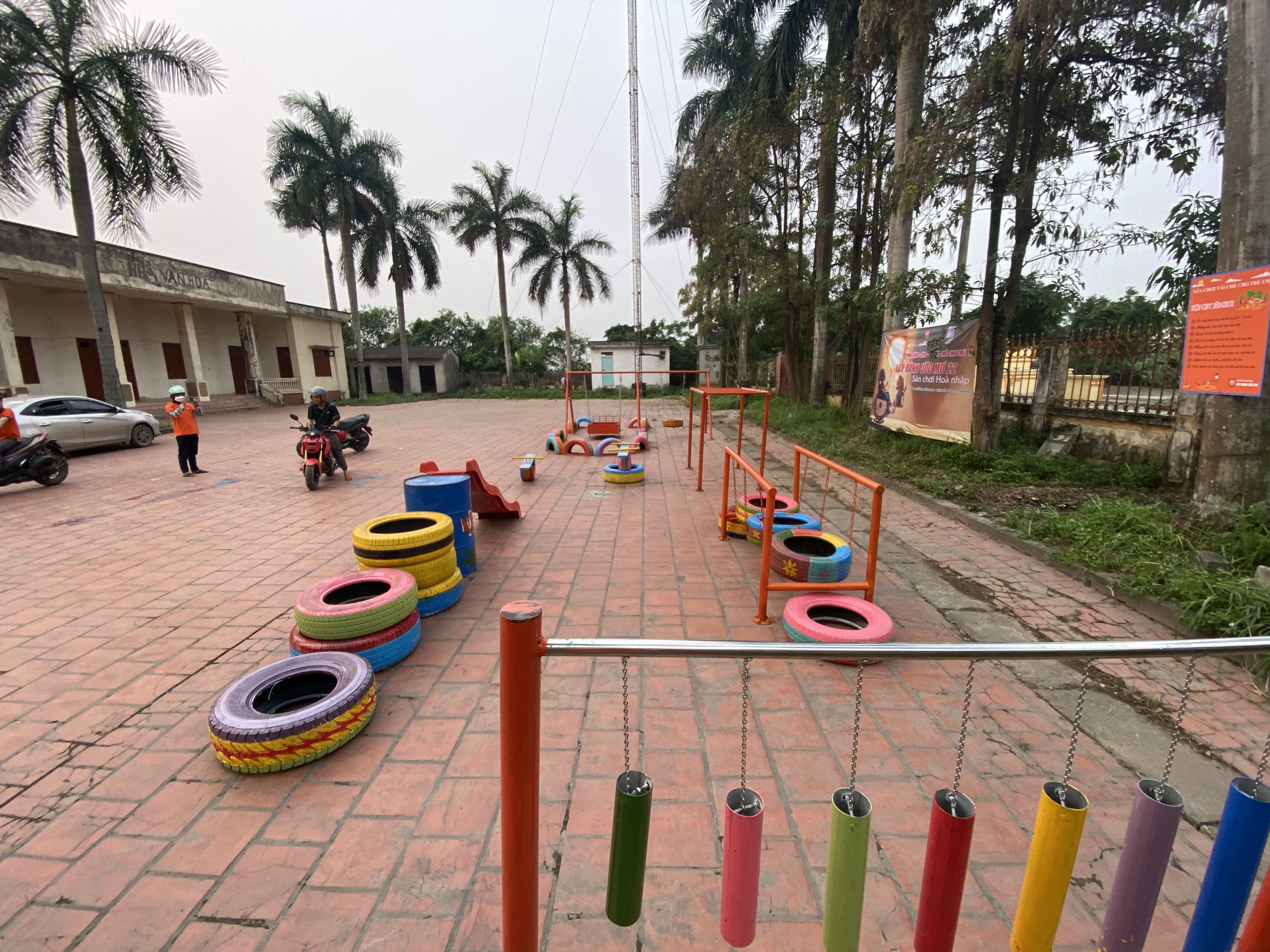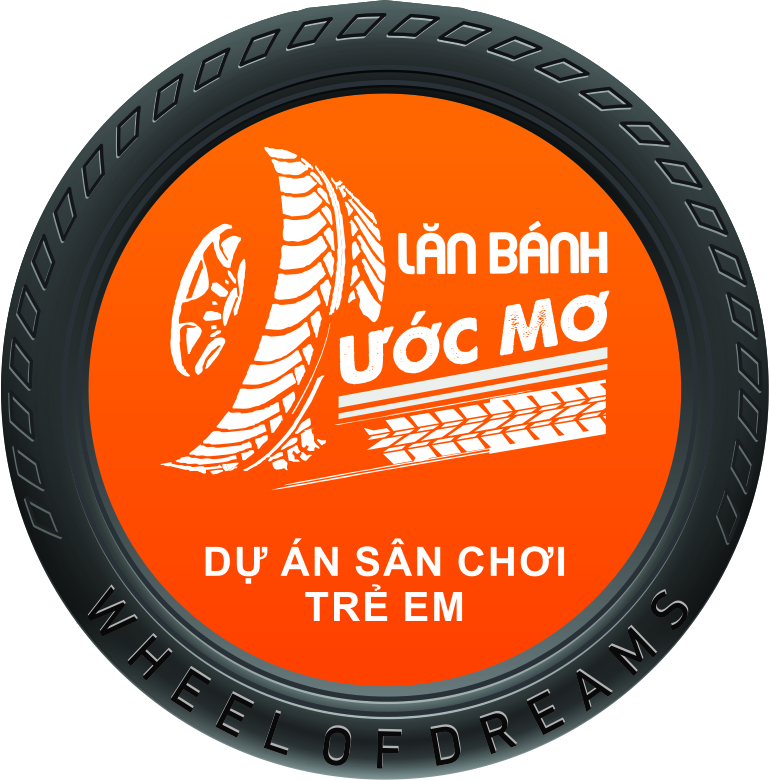Part 1
Starting background of the project/
initiative
Context of Establishment
Used tires are one of the types of waste that is difficult to decompose and causes serious environmental pollution. According to estimates, around 1.5 billion tires are produced and consumed globally each year. In Vietnam, the estimated amount of waste tires is around 100,000 tons per year. The current handling of used tires is not closely monitored and managed, leading to many negative consequences for human health and the ecosystem.
On the other hand, children are an important and sensitive demographic in society, especially children in highland, remote, and economically challenged areas. Children in these areas often lack material facilities, safe and creative play spaces, and sustainable environments. According to a UNICEF report in 2019, only 42% of children in rural areas have a playground near their homes. The lack of play spaces not only affects the physical, mental, and intellectual development of children but also reduces their ability to absorb knowledge and life skills.
Given these circumstances, the project "Playgrounds Recycled from Used Tires" was initiated to address two issues simultaneously: protecting the environment and bringing joy to children. The project, launched and implemented by the Wheel of Dreams Enterprise in 2017, aims to build playgrounds for children in difficult regions across the country using recycled tires and other recycled materials. The project not only provides safe, creative, and sustainable play spaces for children but also helps minimize waste and environmental pollution.
Local Infrastructure Shortages
The project is implemented in the northern mountainous provinces and the Central Highlands, where economic and social conditions are challenging, and the poverty rate is high. According to the 2020 report from the Ministry of Planning and Investment, the poverty rate in these provinces ranges from 10% to 40%, significantly higher than the national average of 5.23%. These provinces also have a multidimensional poverty rate (based on criteria such as education, health, clean water, housing, communication access, etc.) ranging from 15% to 50%, much higher than the national average of 9.88%.
Due to challenging economic and social conditions, the infrastructure for education and play for children in these provinces is severely lacking. According to the 2019 report from the Ministry of Education and Training, the rate of schools meeting national standards in these provinces ranges from 50% to 80%, lower than the national average of 86.3%. The rate of schools with playgrounds meeting national standards in these provinces ranges from 40% to 70%, lower than the national average of 76.4%. Many schools in remote areas lack basic facilities such as electricity, water, sanitation, and desks and chairs.
Local Demand for Play in Highland Areas
Children are the demographic group with the highest demand and right to play in society. Play is an essential activity for the comprehensive development of children in terms of physical, mental, and intellectual aspects. Play helps children develop physical fitness, health, communication skills, cooperation, sharing, creativity, and problem-solving skills. Play also helps children relieve stress, anxiety, enhance confidence, and find joy in life.
Children in highland areas have the same needs and rights to play as children elsewhere. However, due to challenging economic and social conditions and a lack of basic infrastructure, the needs of children in highland areas for play are not fully and effectively met. Many children in highland areas do not have access to safe, creative, and sustainable play spaces. Many children have to endure polluted, dangerous, and boring play environments. Many children do not have access to suitable play equipment and tools for their age and abilities. Many children do not have access to beneficial and educational play activities and programs.





